Lucha Libre: Stories from the Ring, El Paso Edition
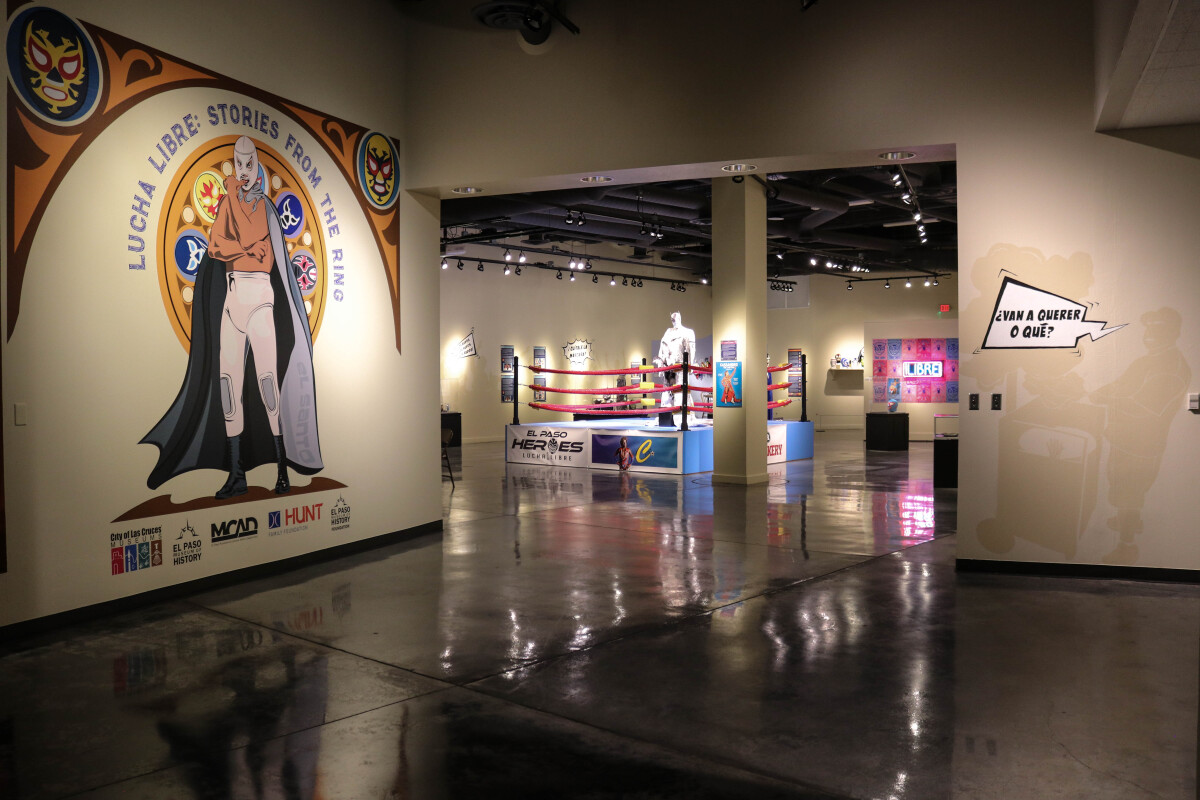
Lucha Libre: Stories from the Ring, El Paso Edition
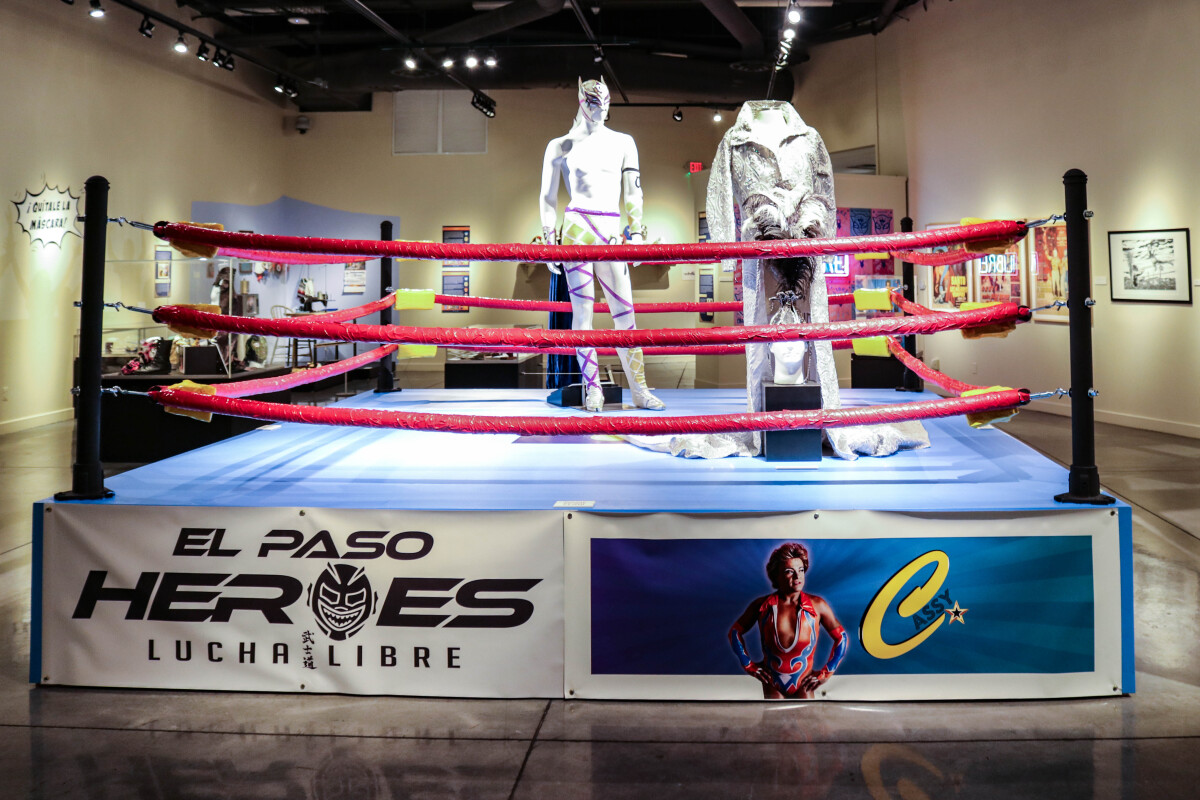
Lucha Libre: Stories from the Ring, El Paso Edition
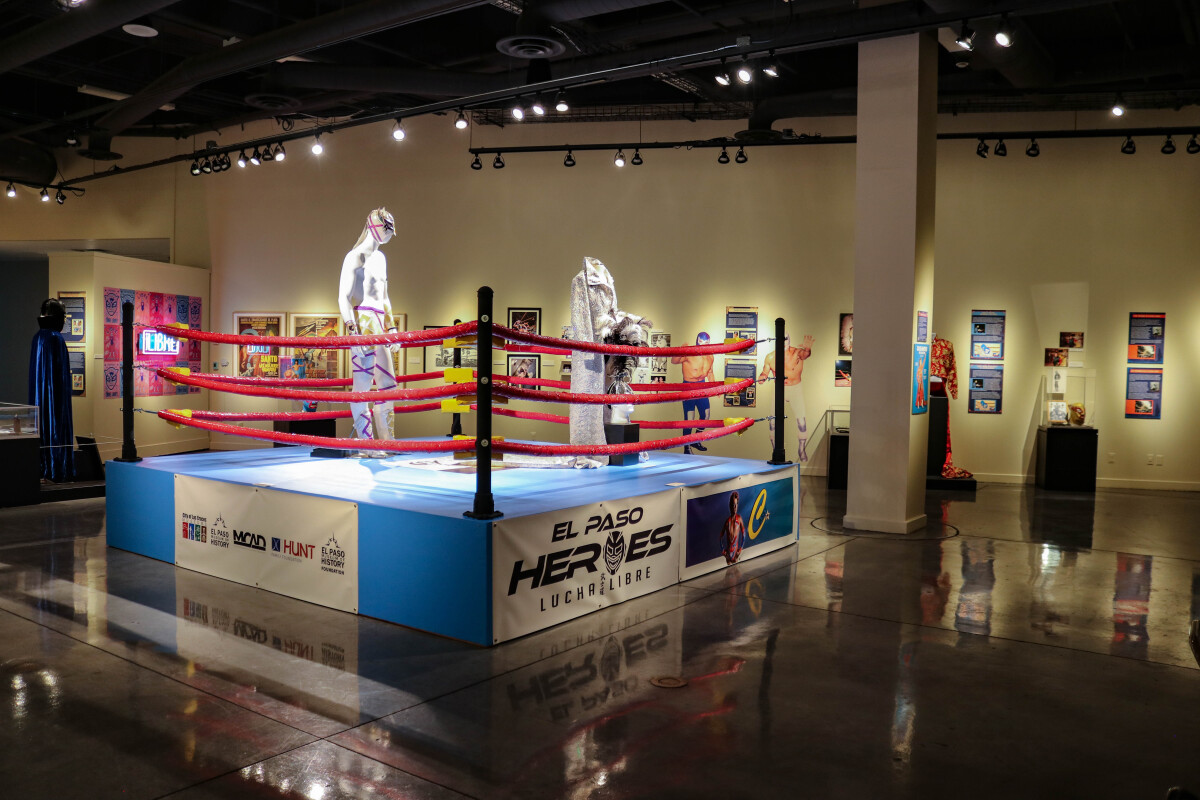
Lucha Libre: Stories from the Ring, El Paso Edition
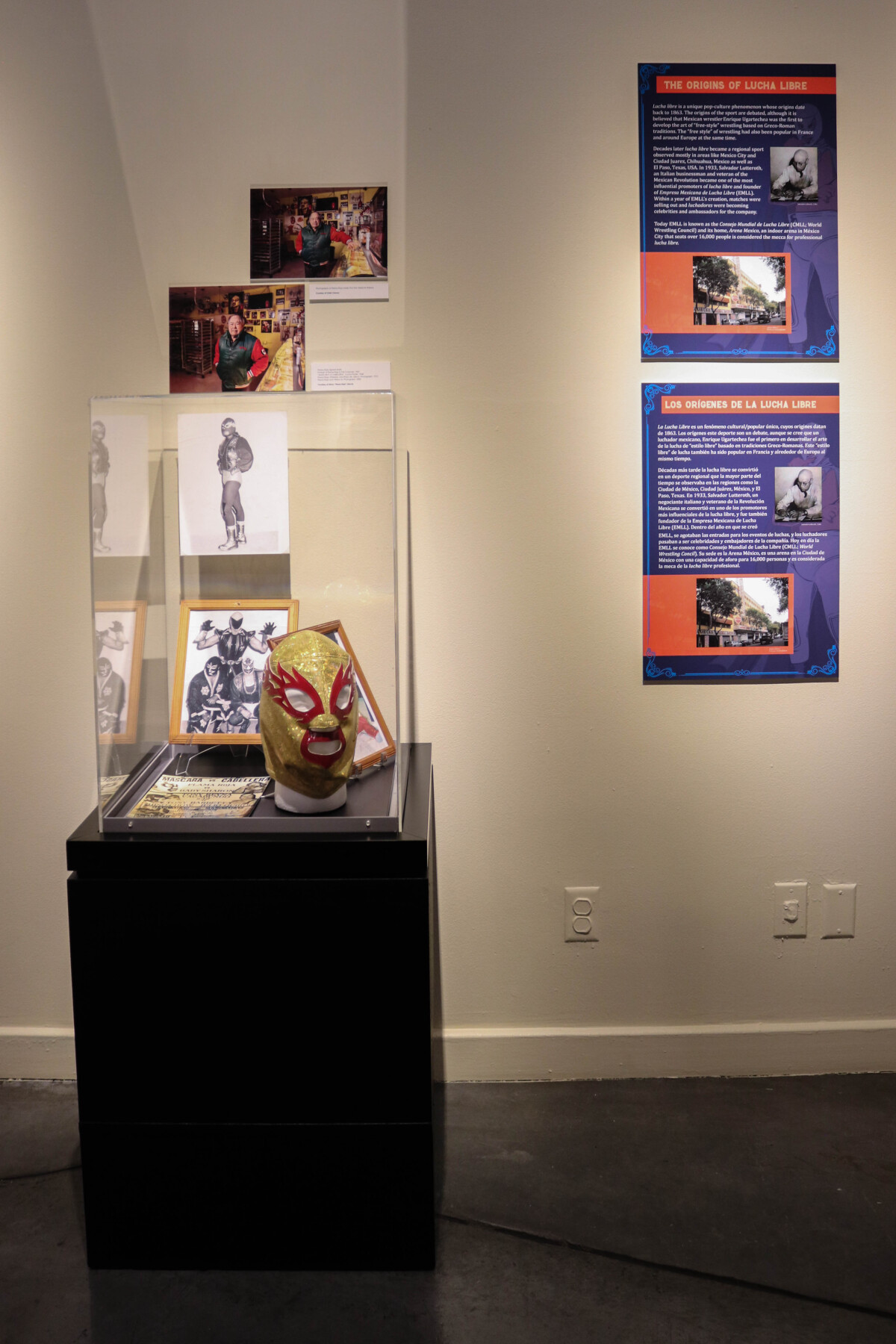
Lucha Libre: Stories from the Ring, El Paso Edition
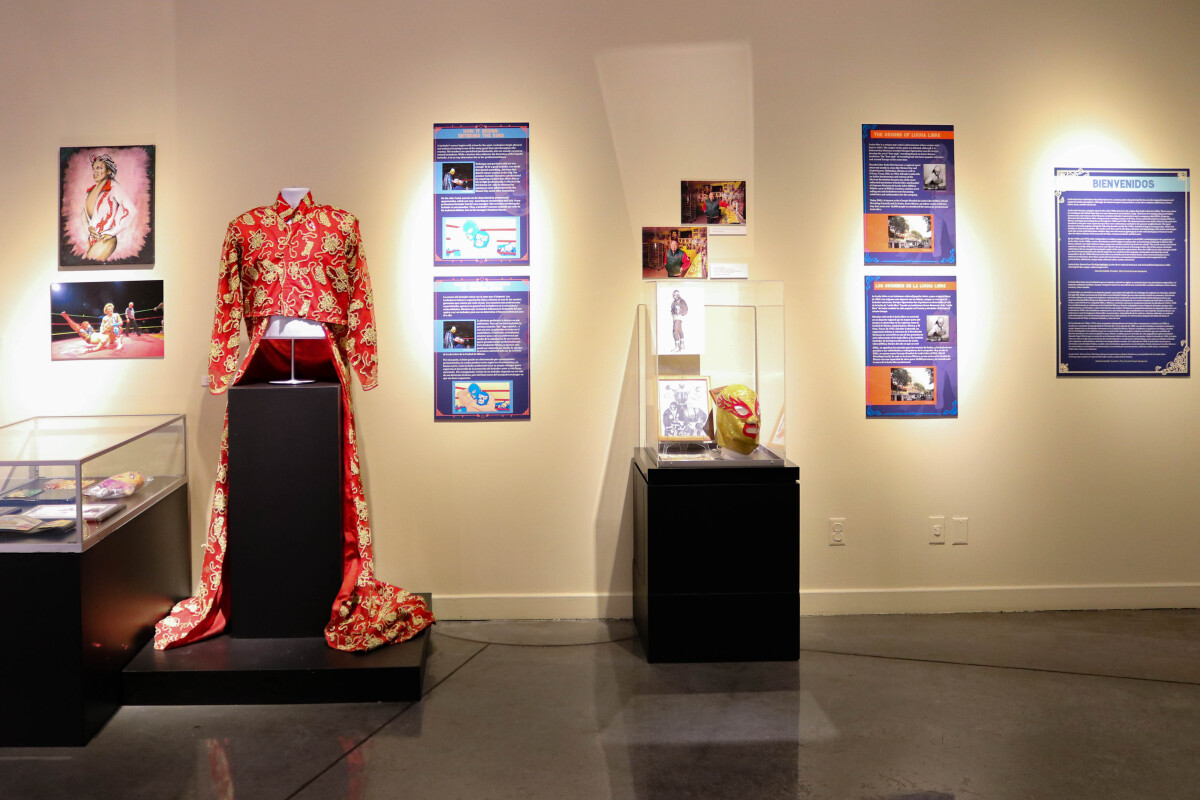
Lucha Libre: Stories from the Ring, El Paso Edition
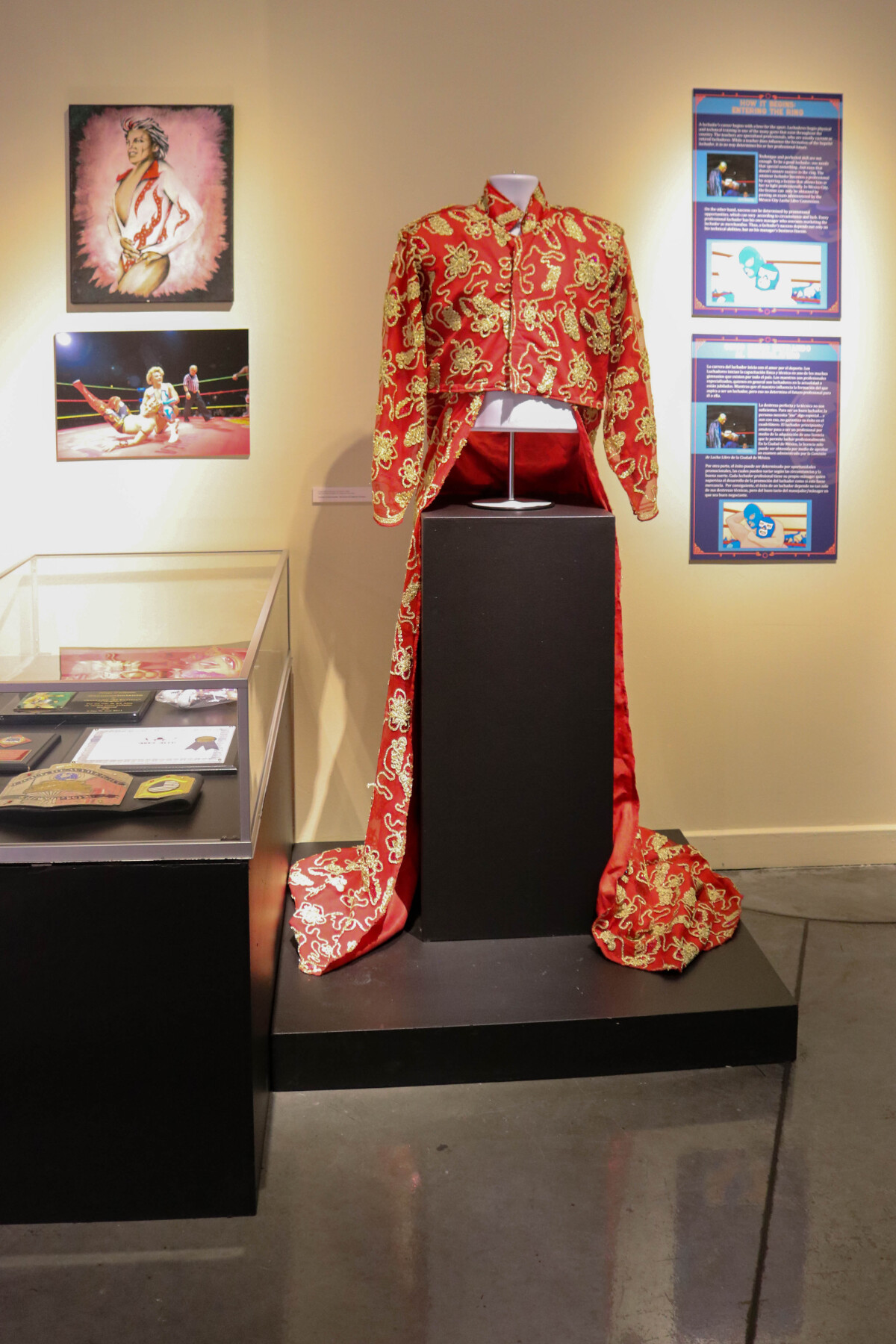
Lucha Libre: Stories from the Ring, El Paso Edition
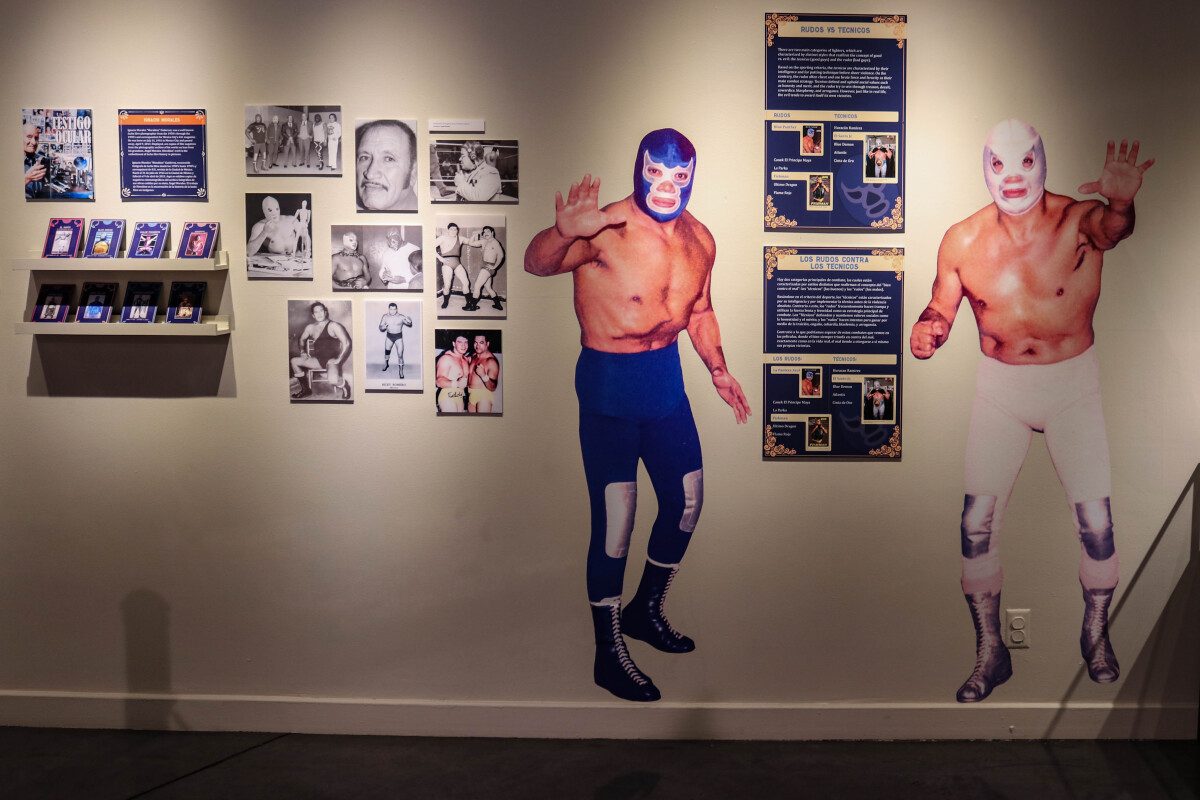
Lucha Libre: Stories from the Ring, El Paso Edition
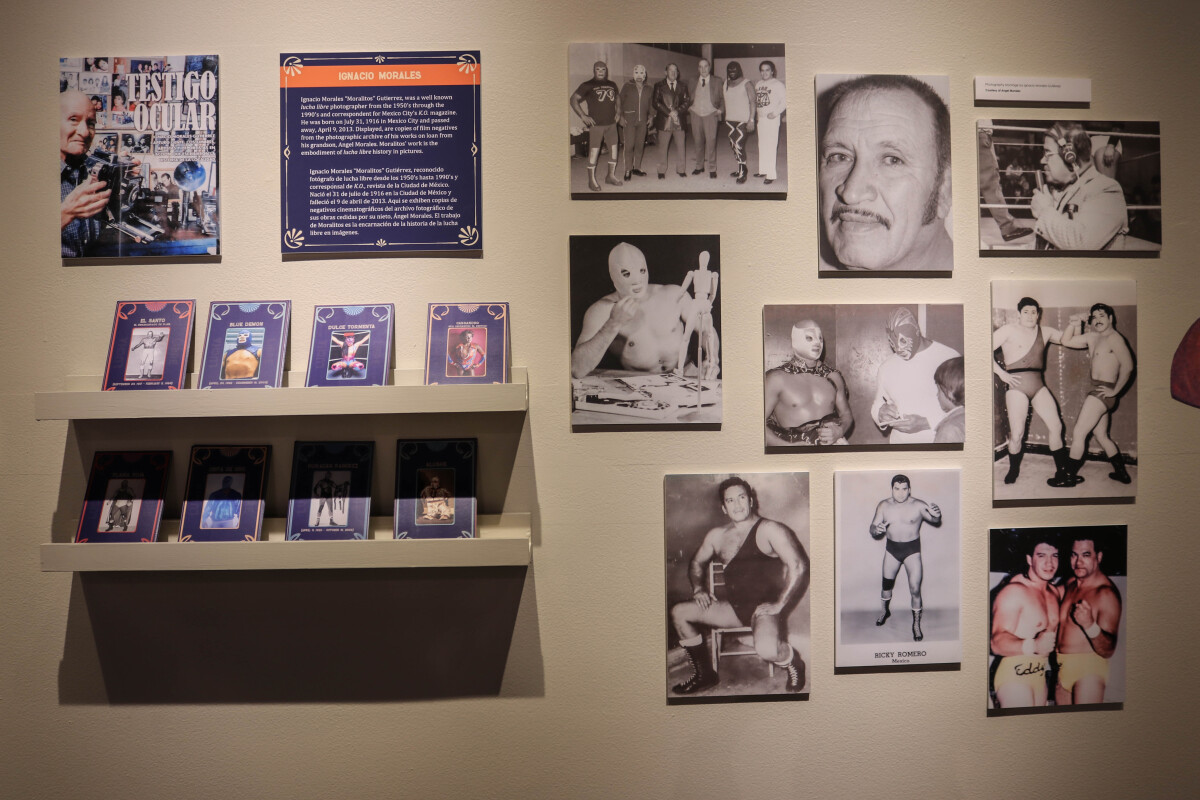
Lucha Libre: Stories from the Ring, El Paso Edition
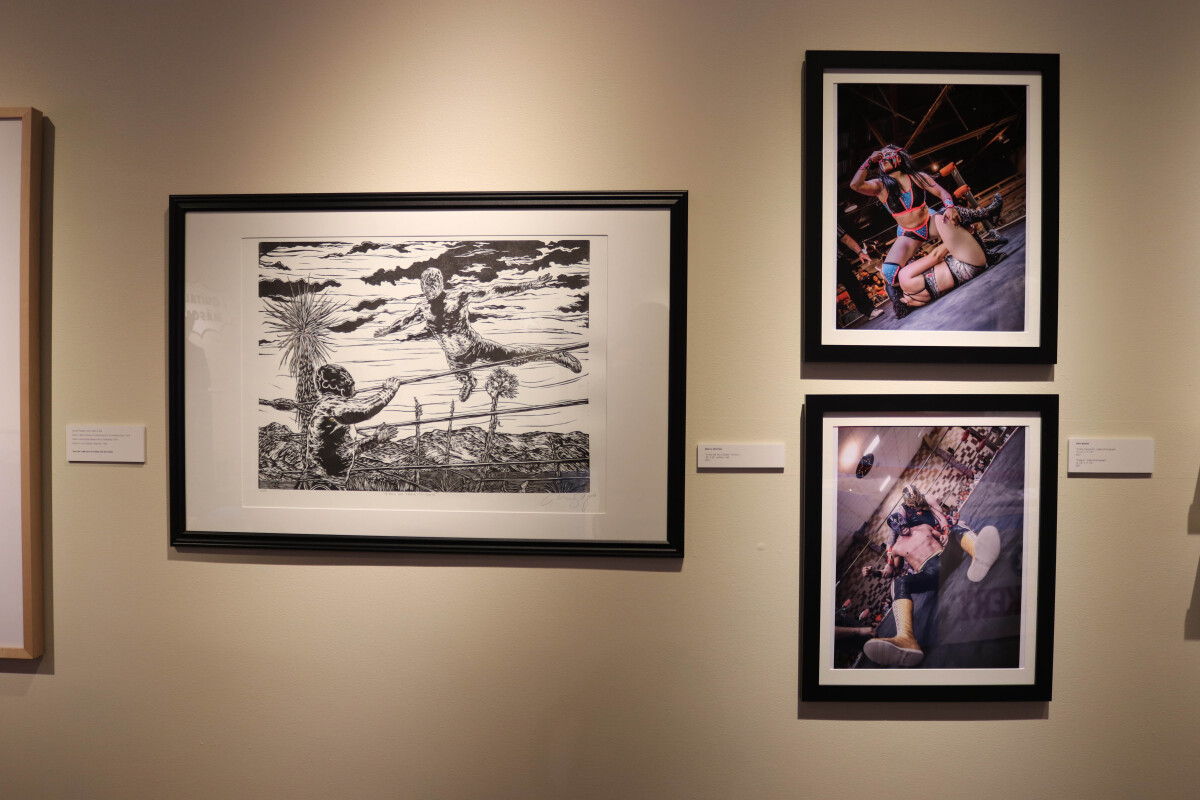
Lucha Libre: Stories from the Ring, El Paso Edition
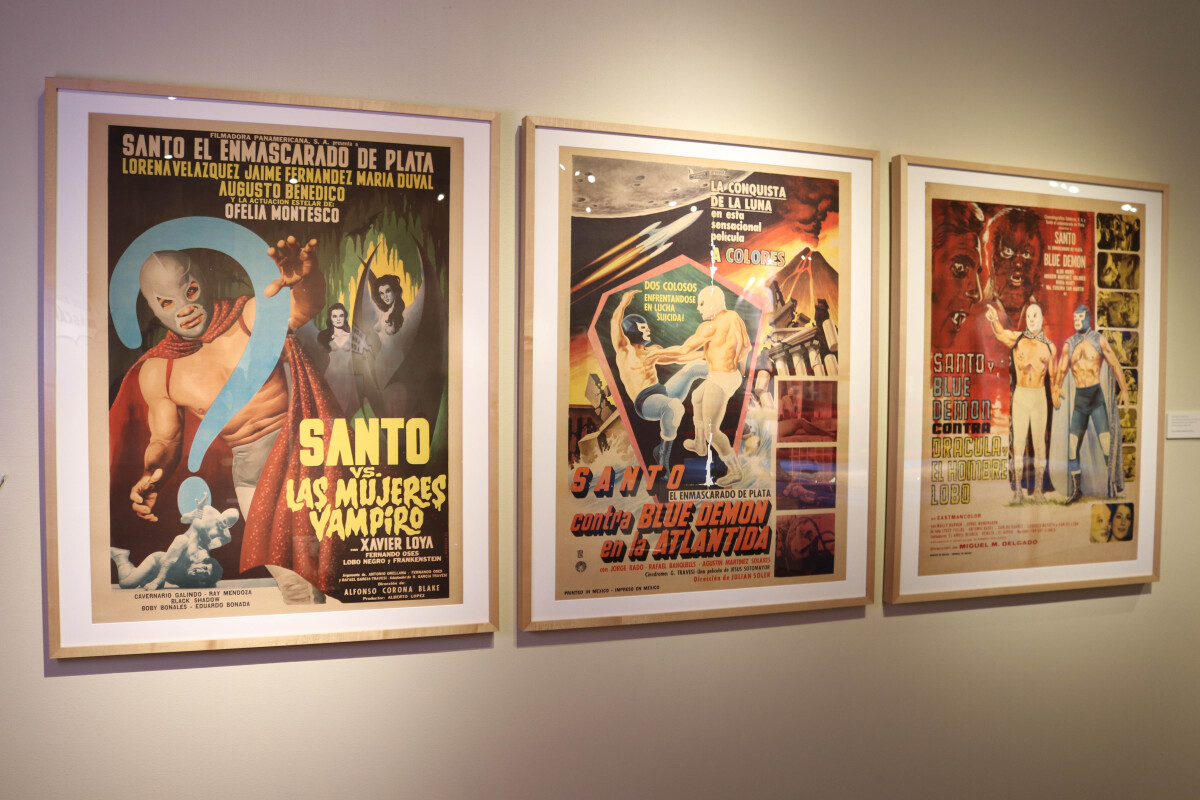
Lucha Libre: Stories from the Ring, El Paso Edition
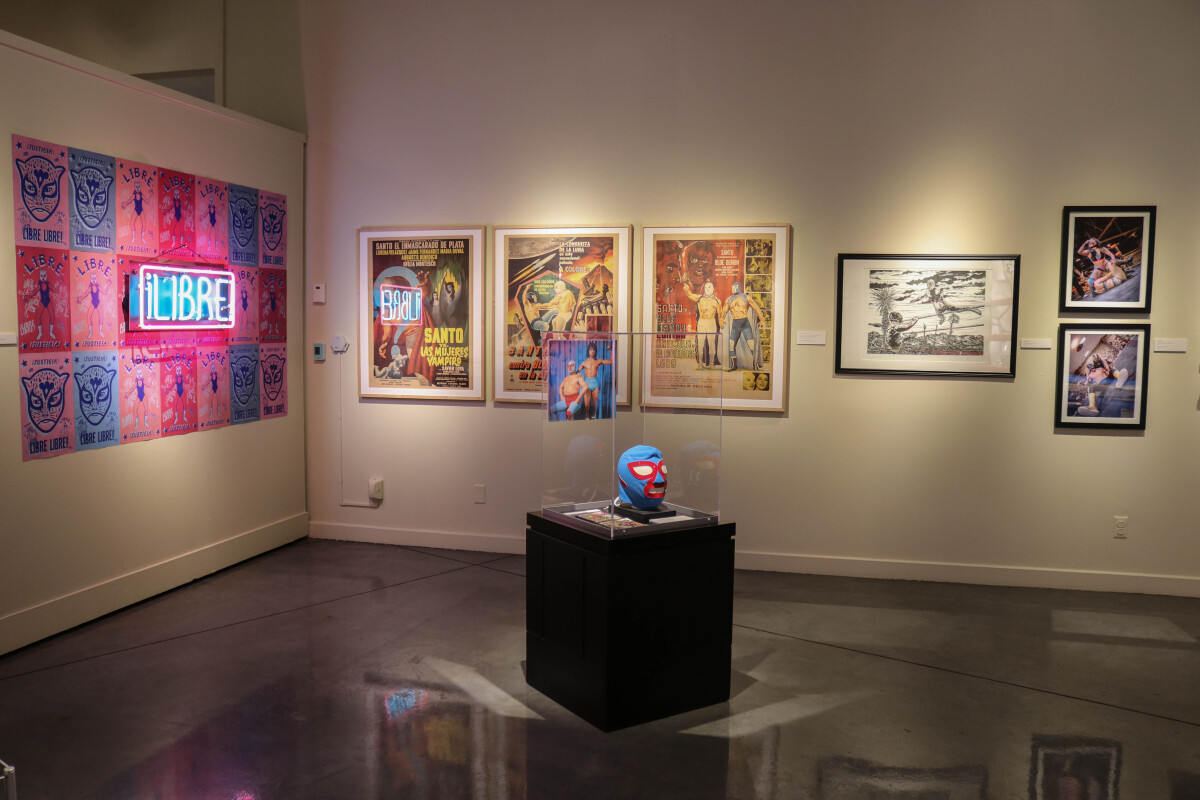
Lucha Libre: Stories from the Ring, El Paso Edition
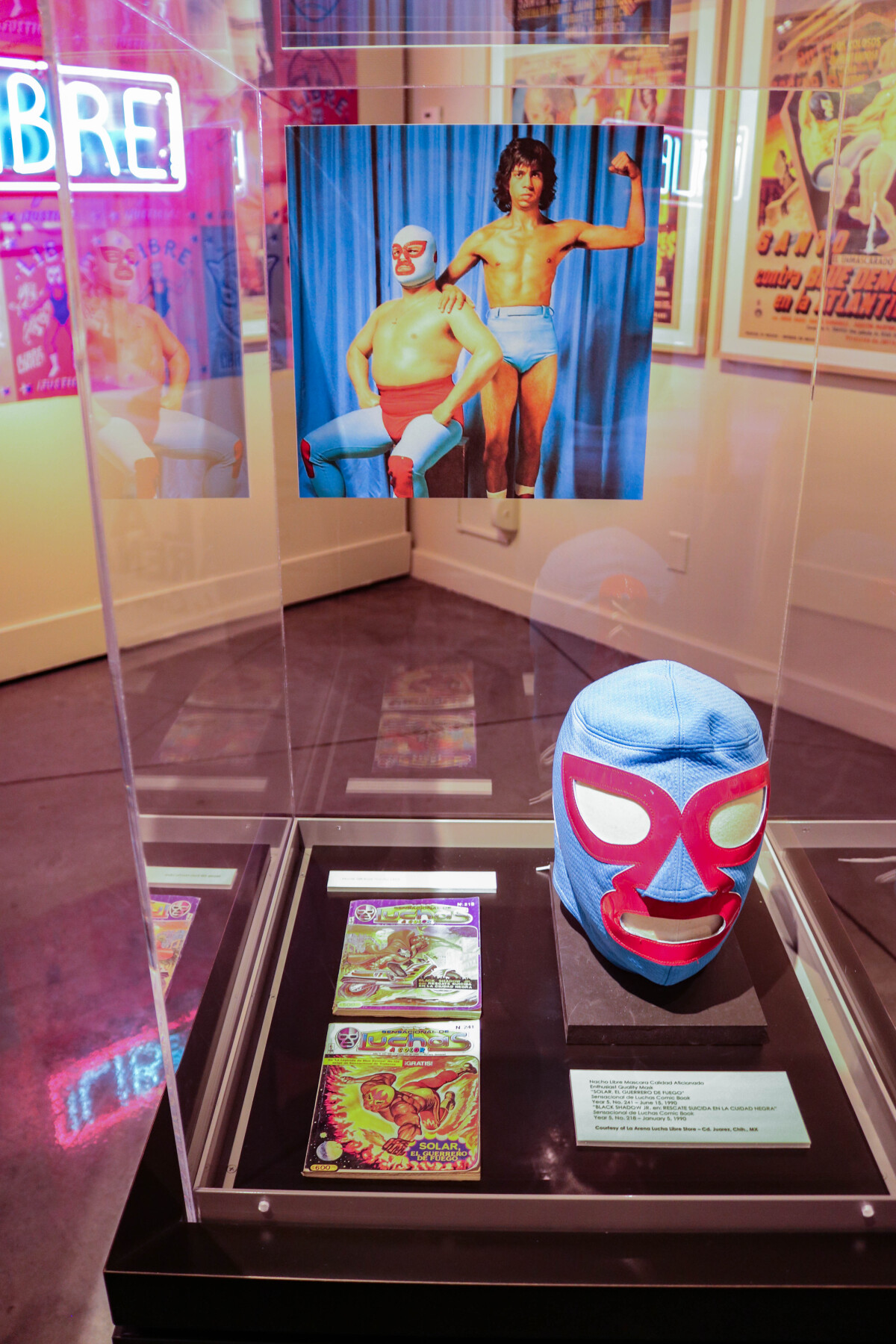
Lucha Libre: Stories from the Ring, El Paso Edition
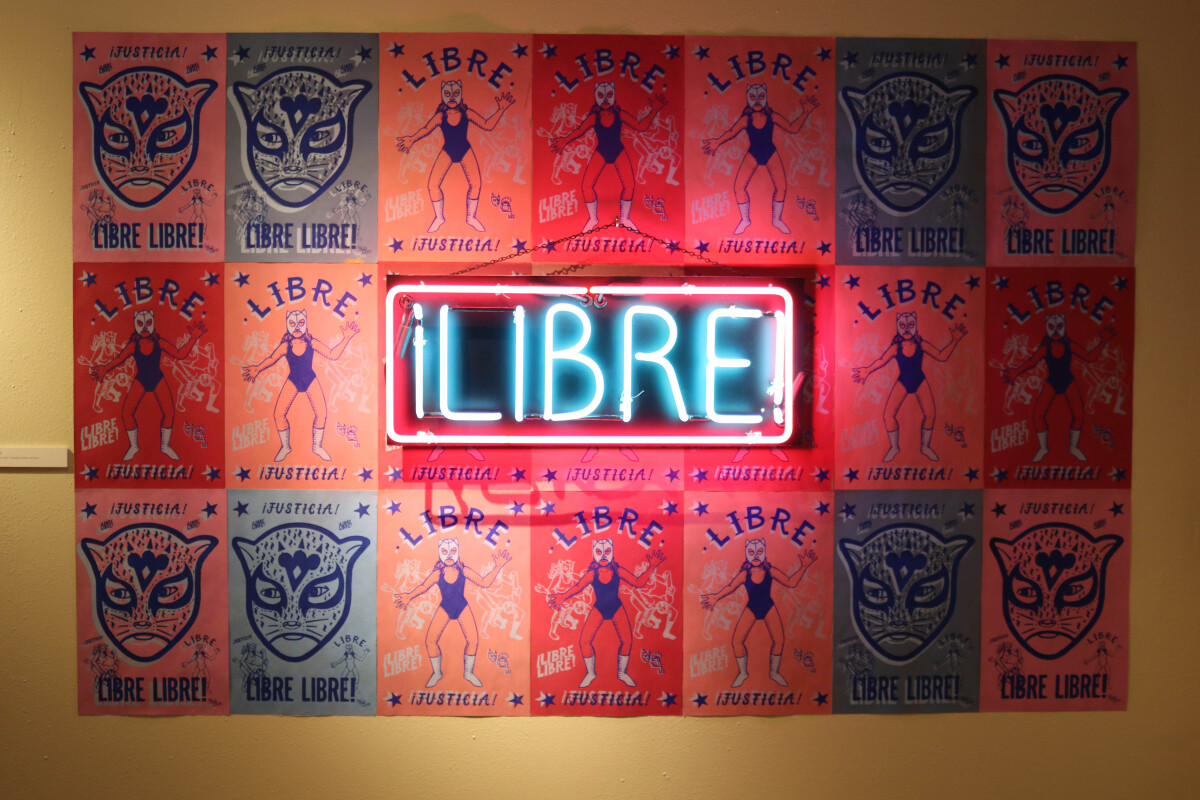
Lucha Libre: Stories from the Ring, El Paso Edition
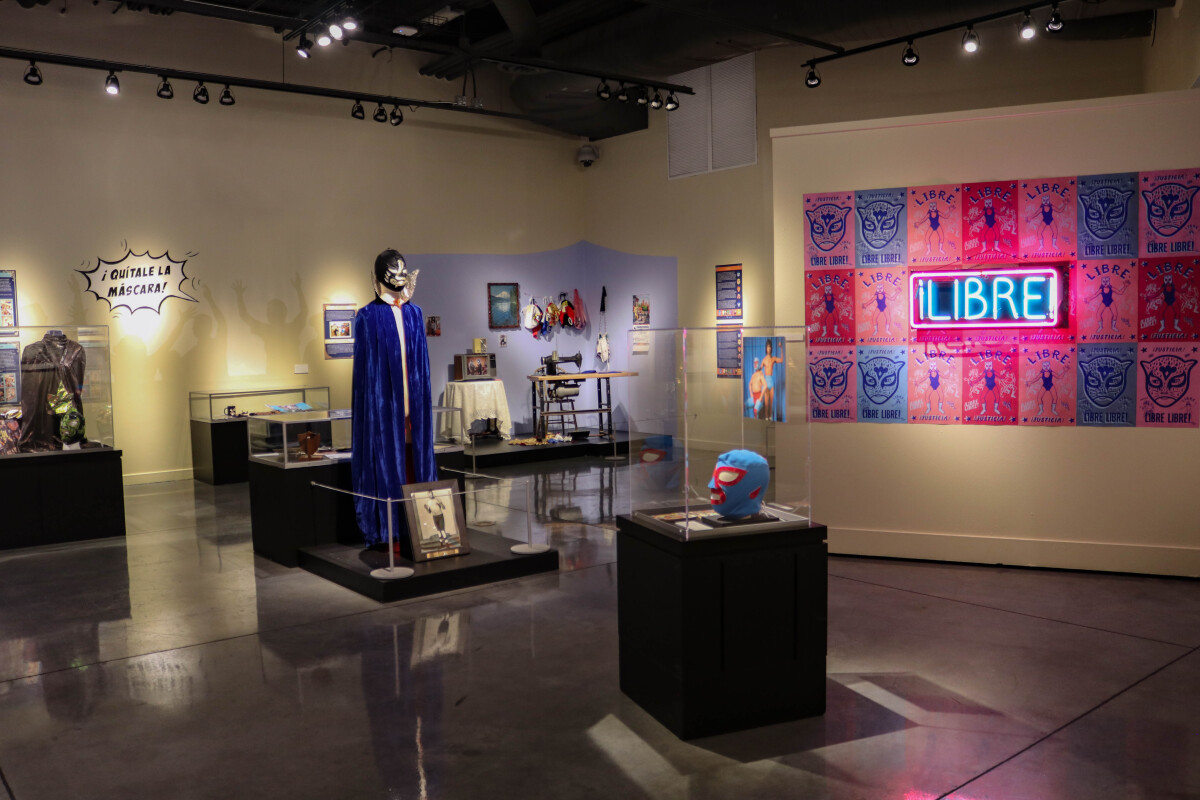
Lucha Libre: Stories from the Ring, El Paso Edition
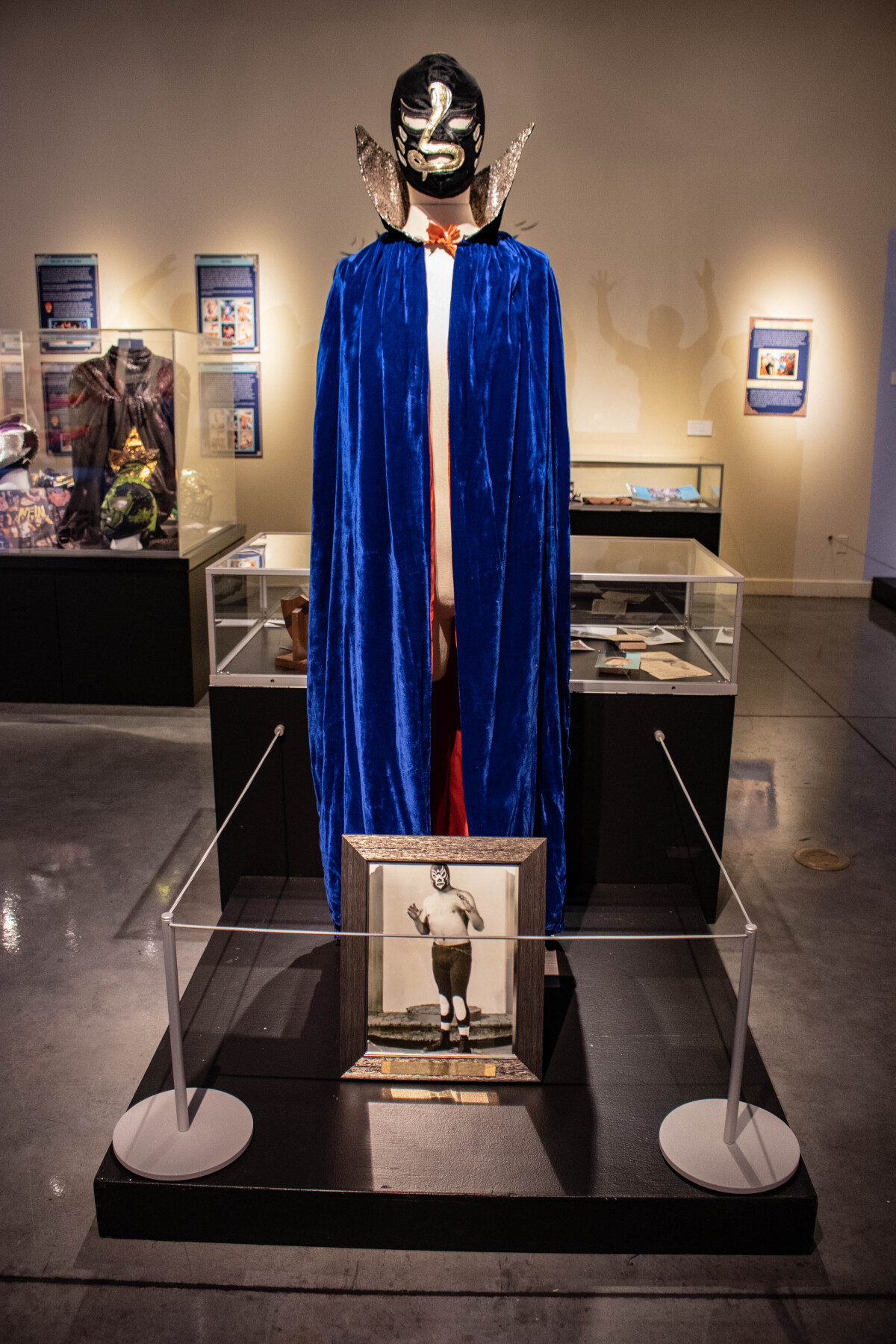
Lucha Libre: Stories from the Ring, El Paso Edition
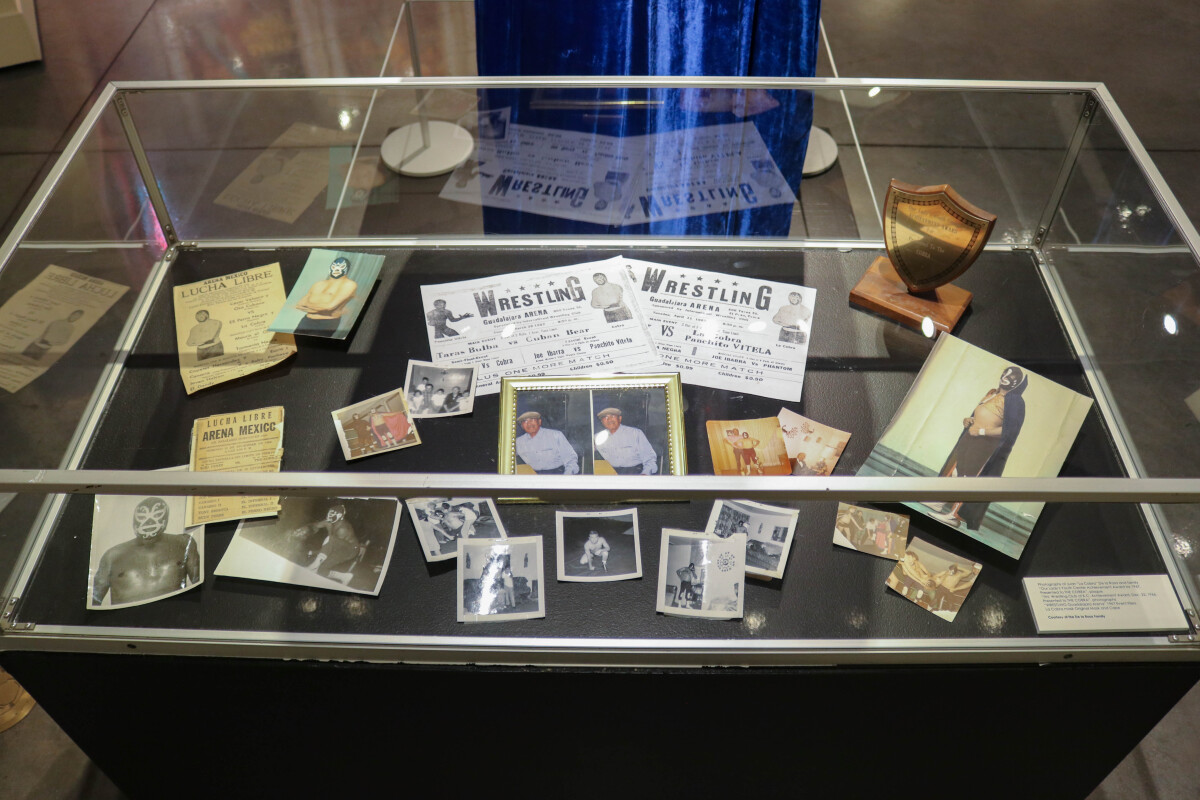
Lucha Libre: Stories from the Ring, El Paso Edition
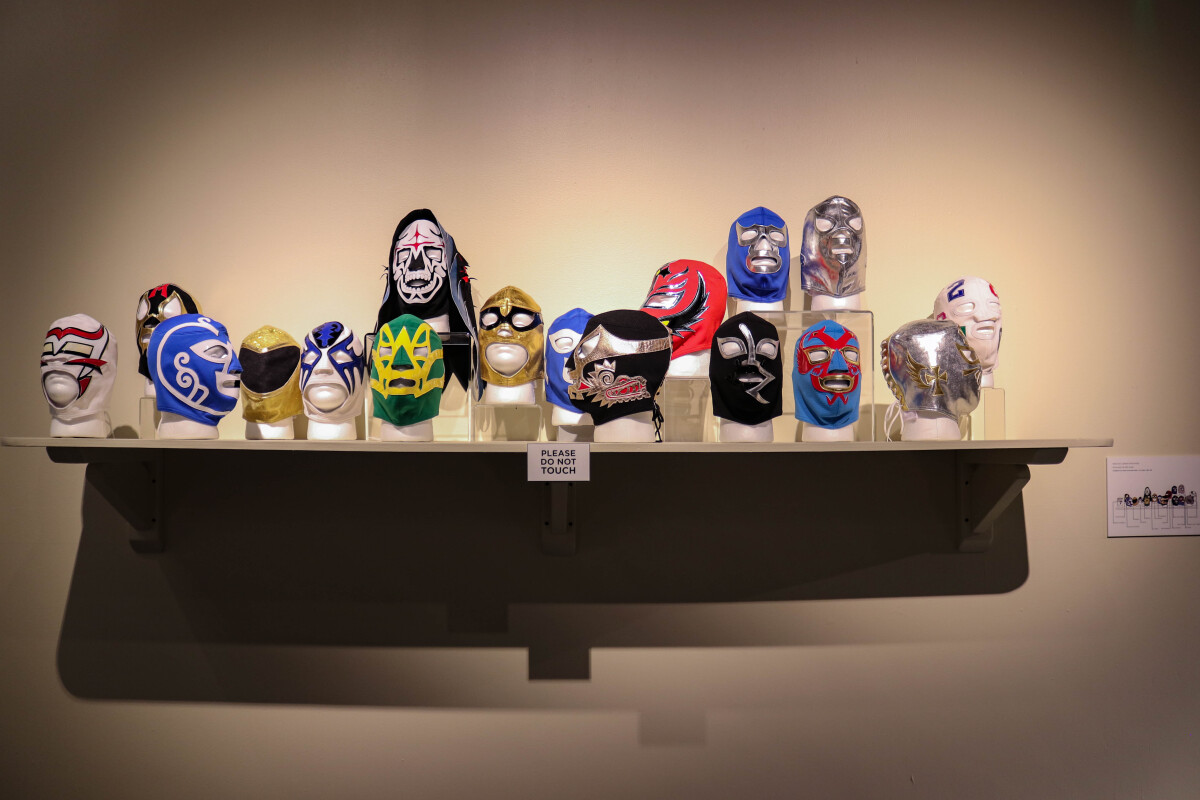
Lucha Libre: Stories from the Ring, El Paso Edition
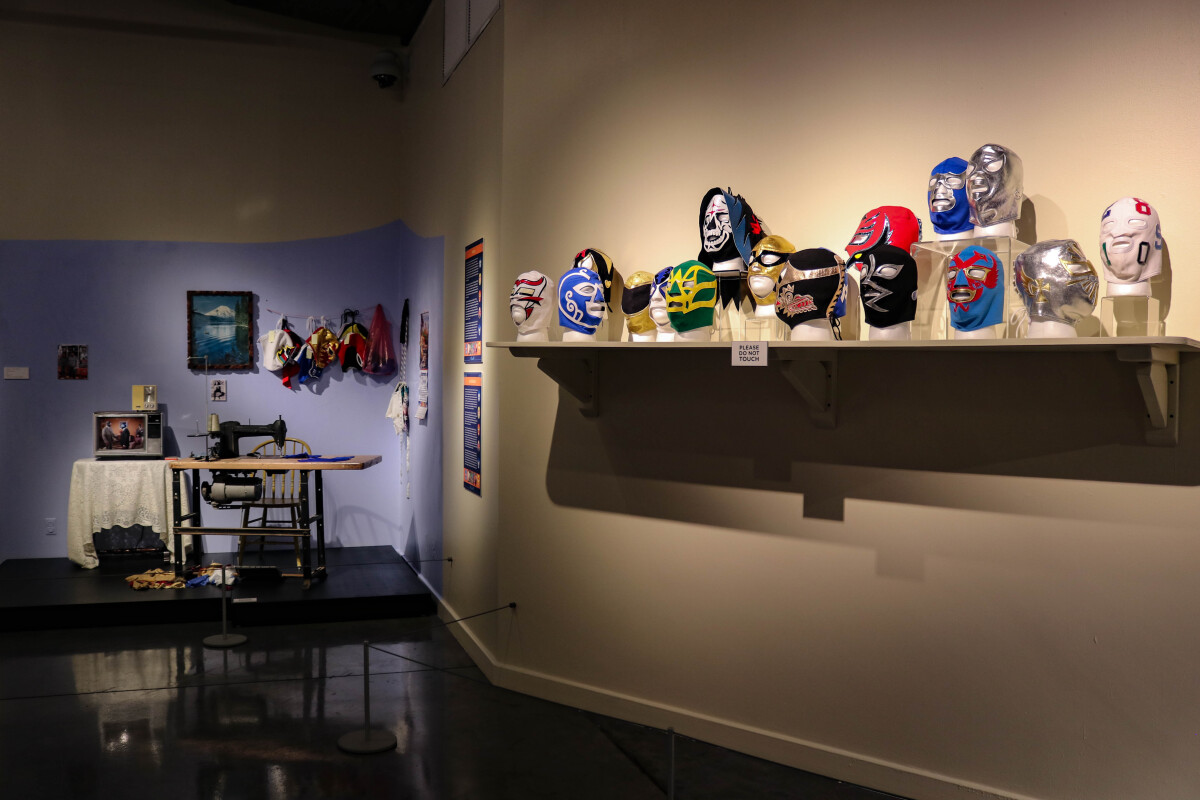
Lucha Libre: Stories from the Ring, El Paso Edition
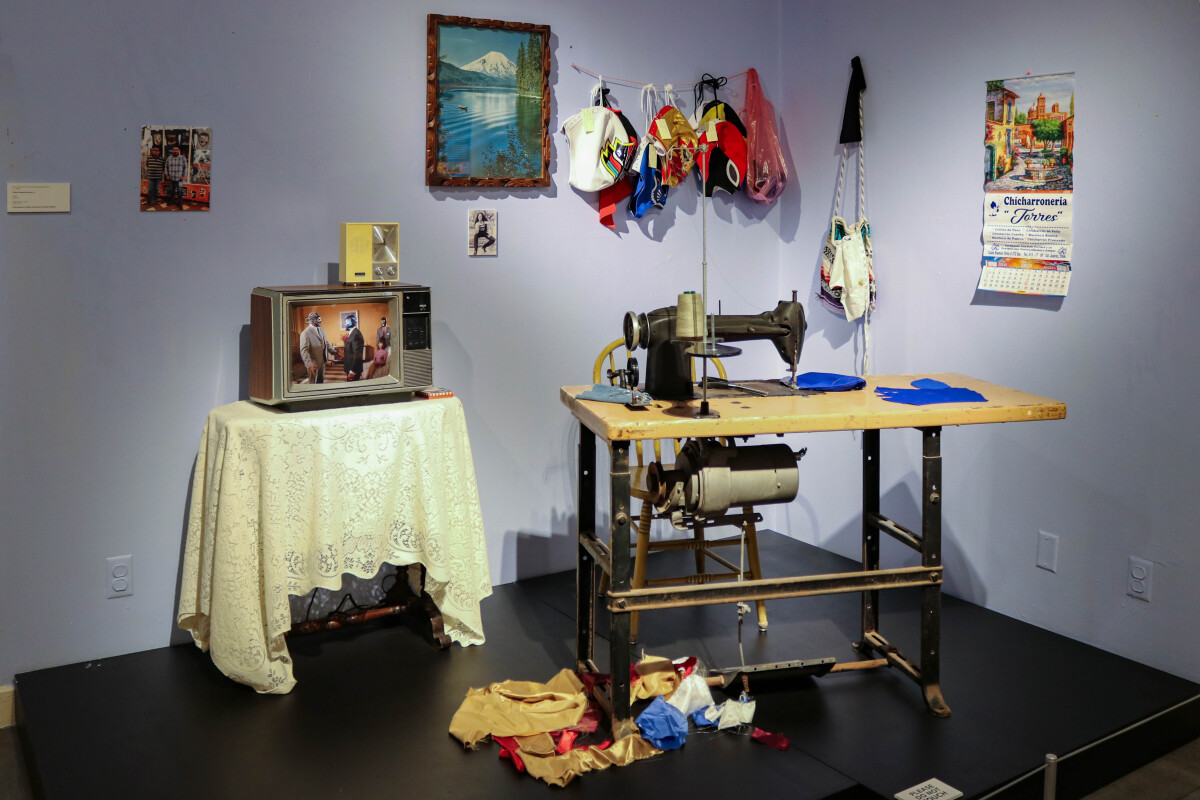
Lucha Libre: Stories from the Ring, El Paso Edition
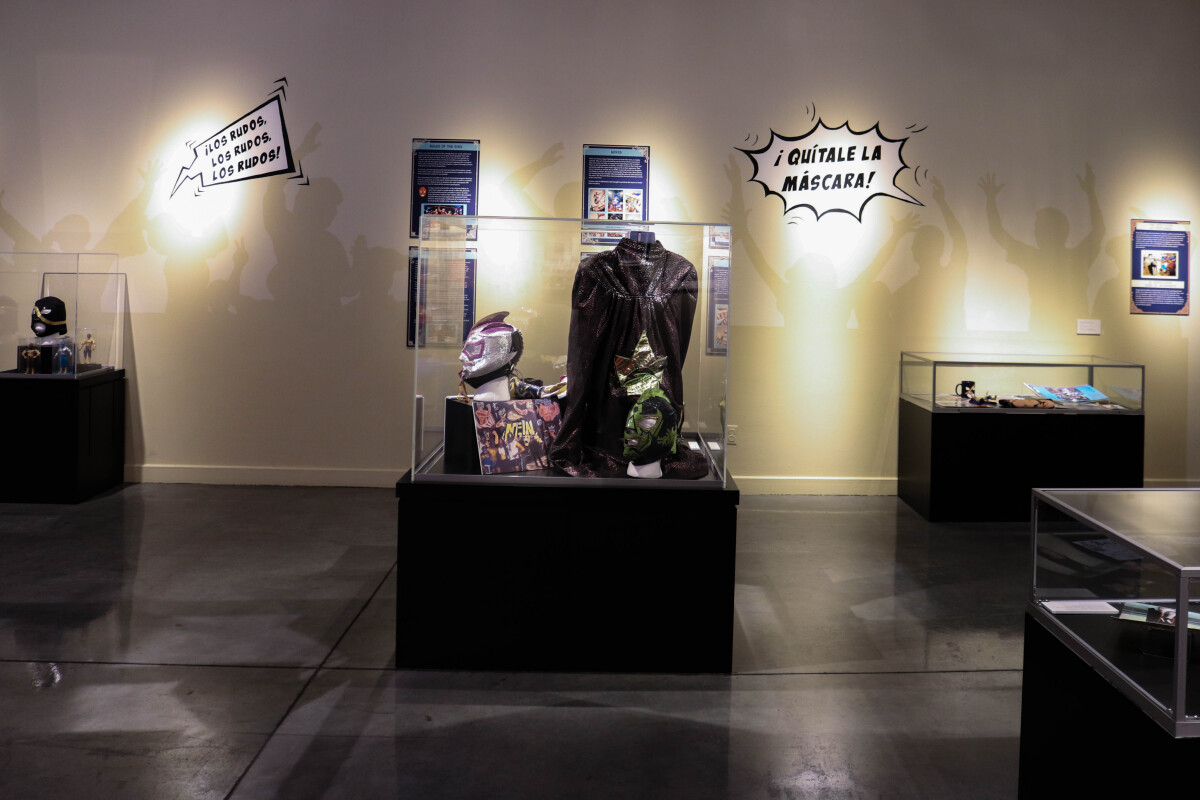
Lucha Libre: Stories from the Ring, El Paso Edition
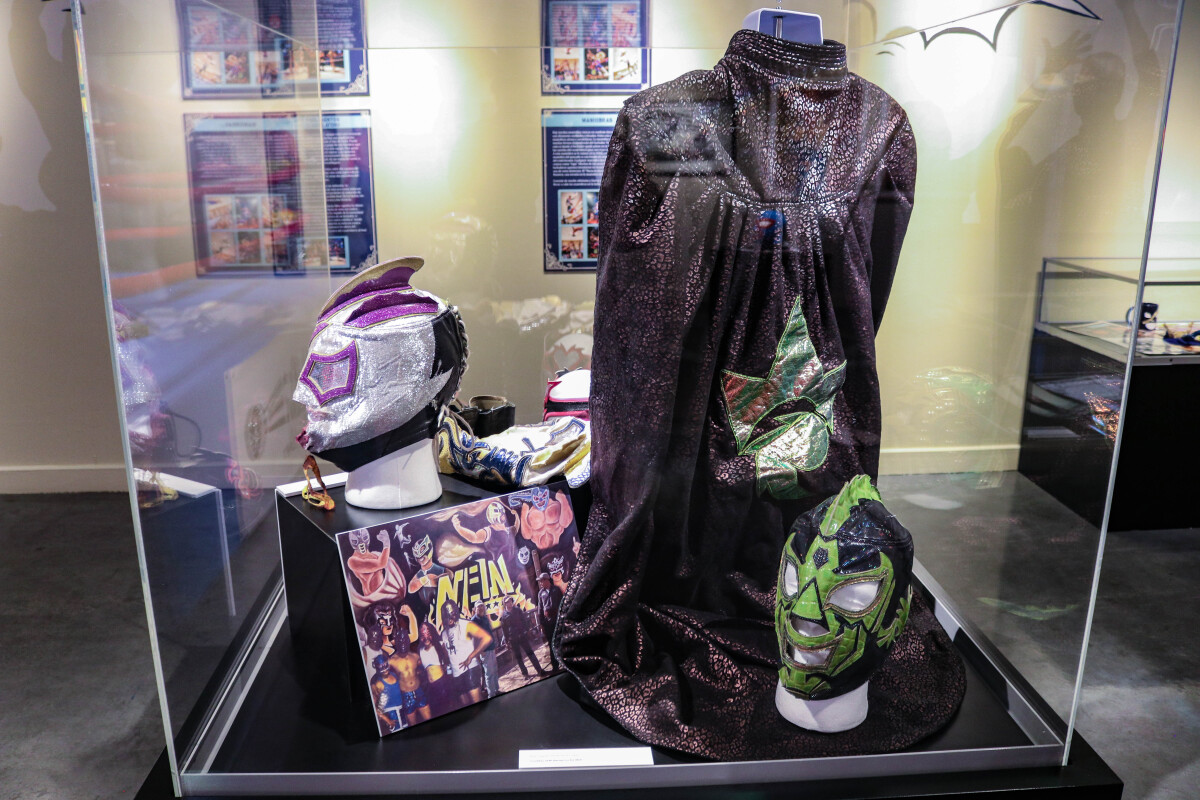
Lucha Libre: Stories from the Ring, El Paso Edition
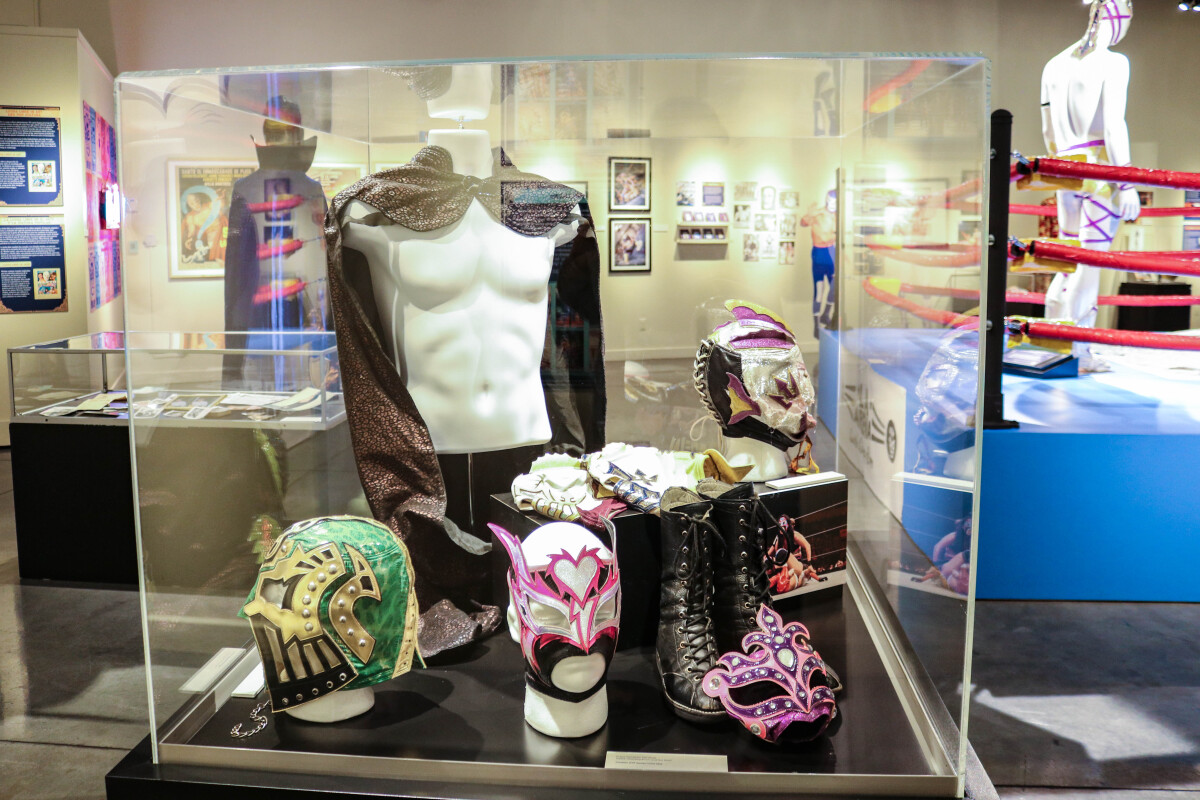
Lucha Libre: Stories from the Ring, El Paso Edition
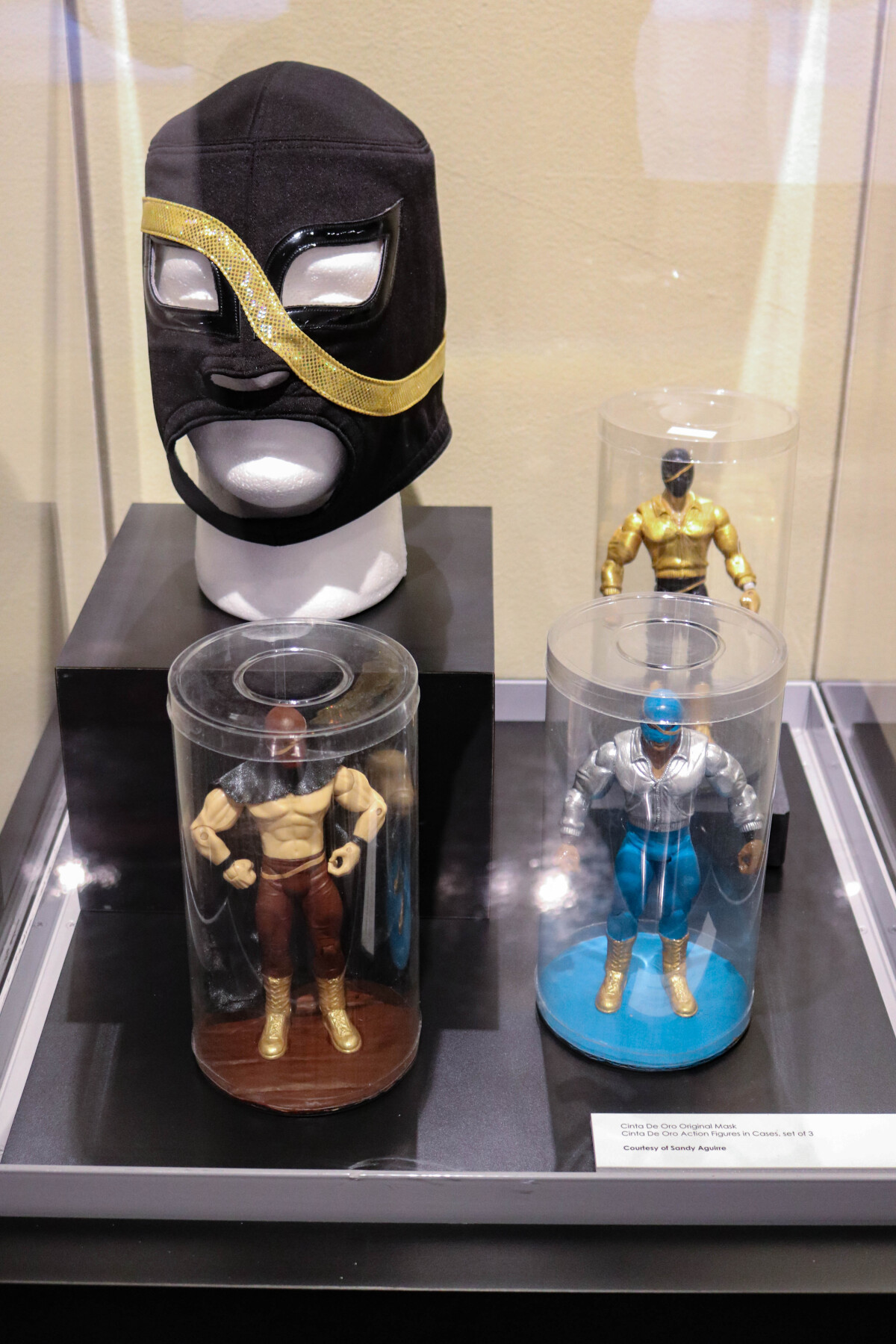
Lucha Libre: Stories from the Ring, El Paso Edition
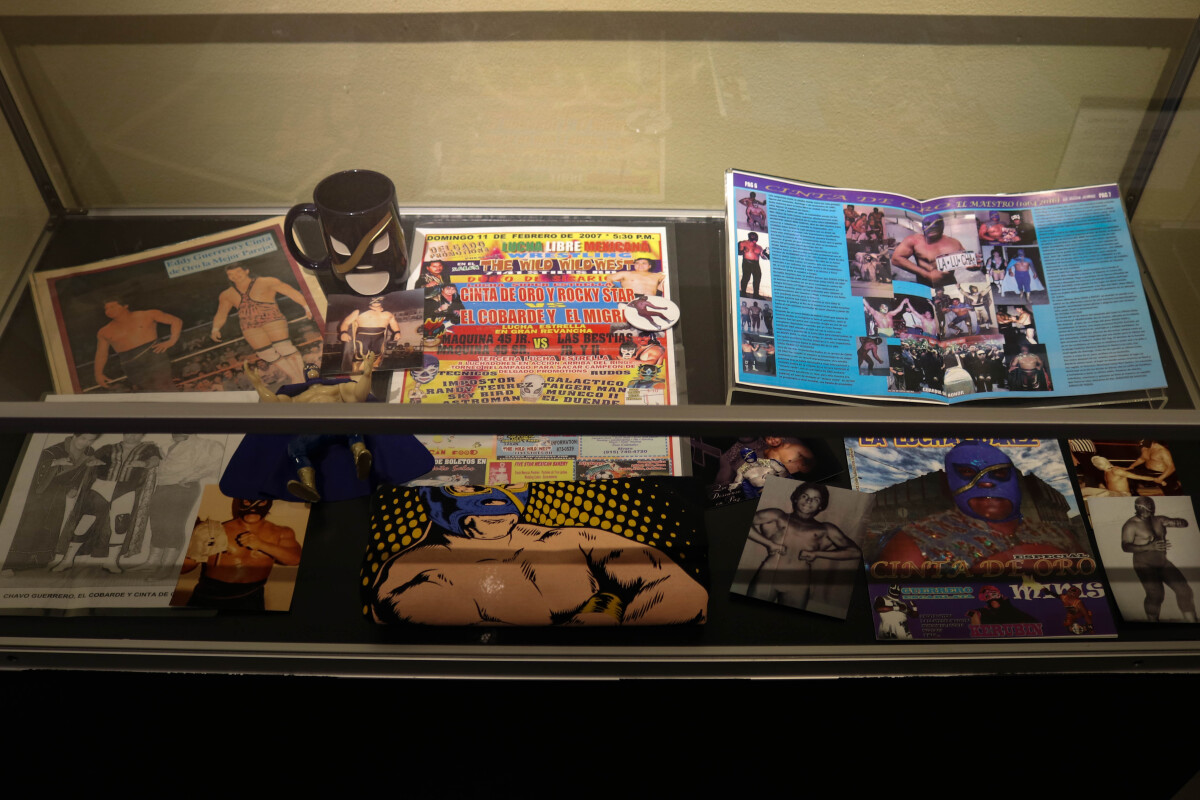
Lucha Libre: Stories from the Ring, El Paso Edition
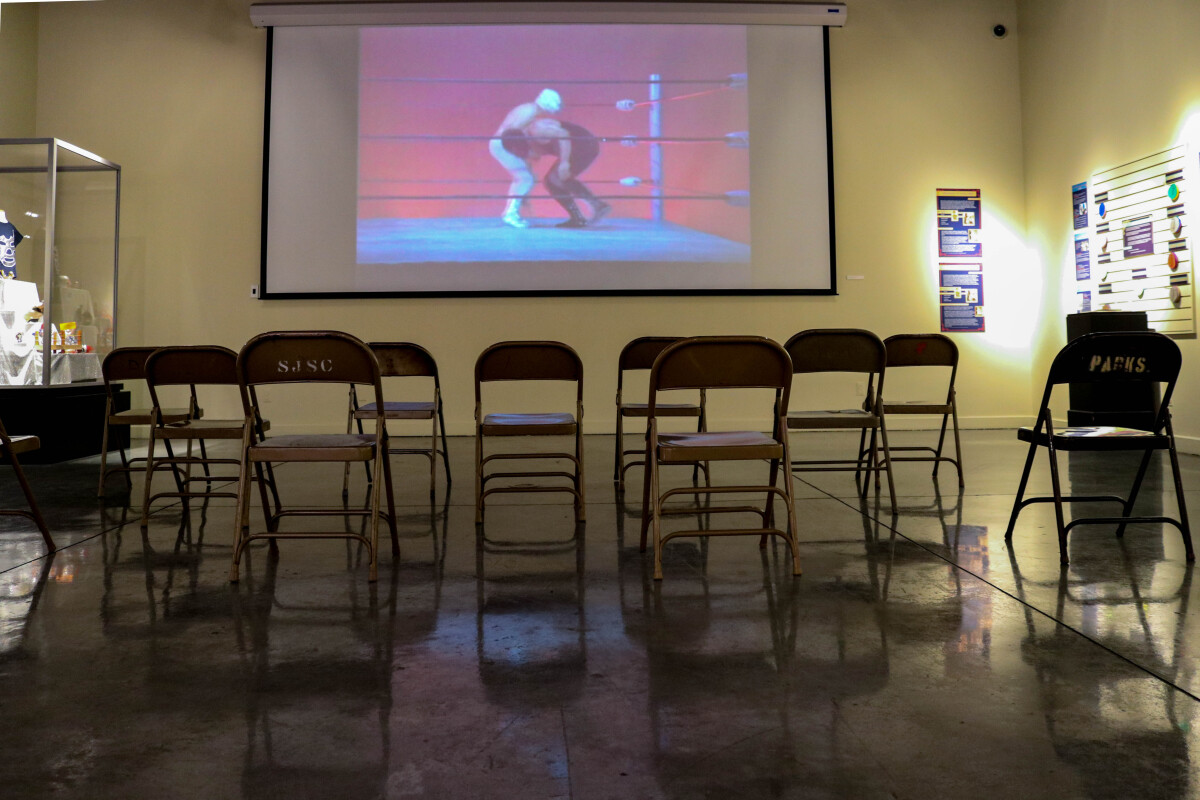
Lucha Libre: Stories from the Ring, El Paso Edition
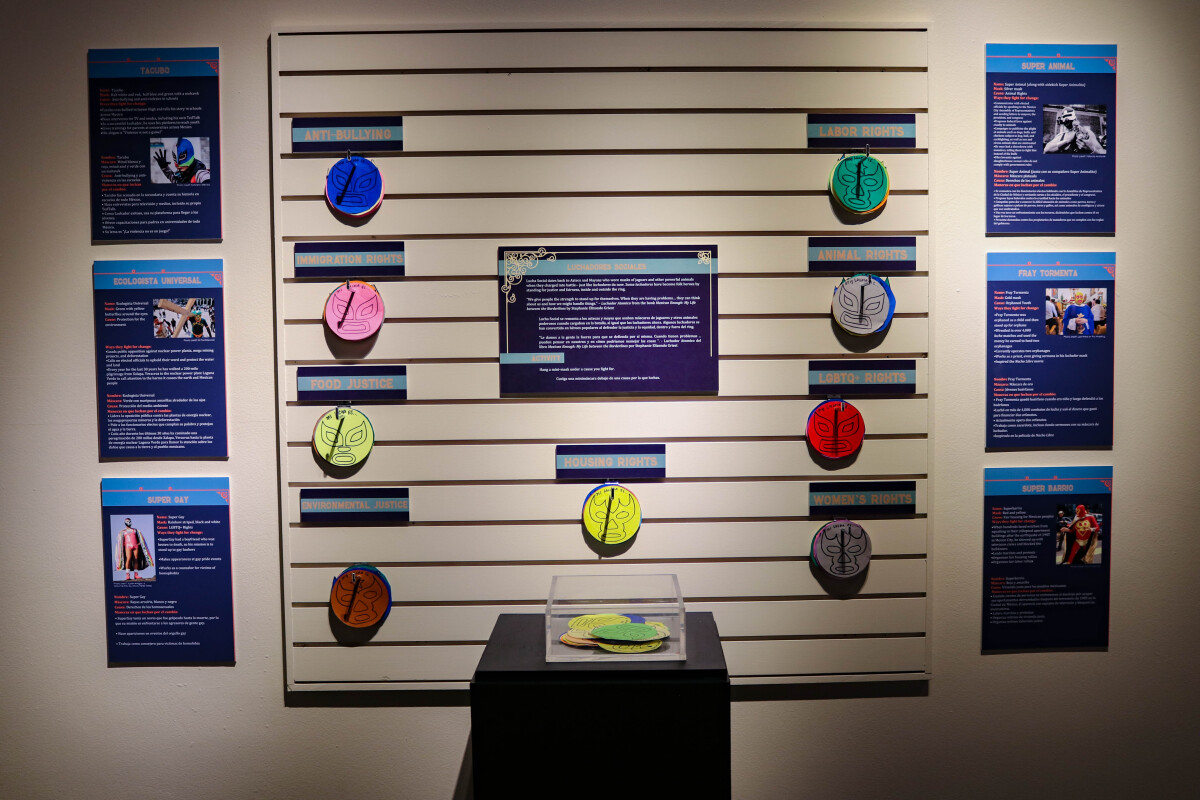
Lucha Libre: Stories from the Ring, El Paso Edition
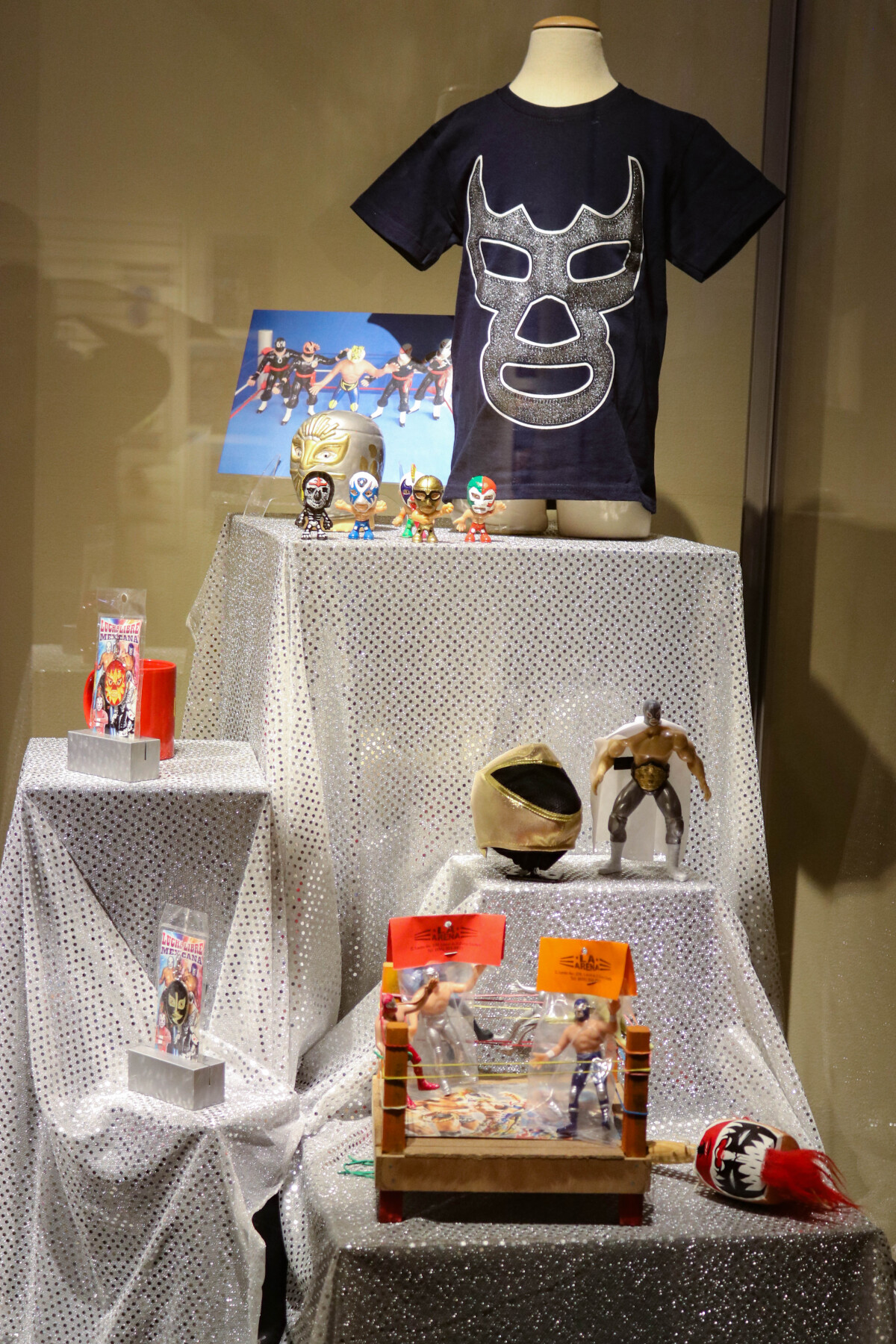
Lucha Libre: Stories from the Ring, El Paso Edition
The exhibition tells the history of Lucha Libre, its connections to the border region, and the stories that have come from the sport. Lucha Libre: Stories from the Ring, El Paso edition, will showcase stories, sponsors and memorabilia all related to local Lucha Libre history. The Museum of History has partnered with the City of Las Cruces Museums to bring the exhibition to El Paso. The original exhibition opened at the Branigan Cultural Center in Las Cruces, New Mexico, in the spring of 2020, but it had to be cut short because of the COVID-19 pandemic. "Lucha Libre has a rich history that dates back over a century and is characterized for its over-the-top performances and supposed macho atmosphere. Although, the theatrical sport is beyond that. Lucha Libre combines athleticism, theater, dance, story, and the visual arts. Lucha Libre became a popular sport in the early 1900s; however, the origins date back to the late 1800s. There was a form of wrestling in the United Sates that was more theatrical and included a stage. This form of wrestling influenced Italian businessman and veteran of the Mexican revolution Salvador Lutterroth to start a company called EMLL (Empresa Mexicana de Lucha Libre). After seeing several wrestling matches in El Paso, Texas, Lutteroth took his company EMLL to Mexico and began promoting shows through the 1920s and 1930s. The demonstrations were held in Mexico City and were classified as the poor man's sport because they were rudimentary and held in the poorest neighborhoods. The sport became extremely popular during the following decades and by the 1950s, luchadores began wearing masks, which was initiallv an American tradition. The masks were then used to develop a character and depending on the colors and designs used, the crowd could determine whether they were the tecnicos (good guys) or the rudos (bad guys). It became iconic after the debut of Santo el Enmascarado de Plata, a famous luchador and film actor. By the 1960s and 1970s other independent wrestling companies began to rival EMLL and helped grow the popularity of Lucha Libre. In the 1980s, a wave of luchadores activist began to emerge after a devastating earthquake in Mexico City. Many residents were left without a home, many were evicted, and the city had to be rebuilt. This social anxiety and unrest caused an assembly of Barrios to march and rally for the government to housing credits. Out of this unrest a luchador called Super Barrio emerged becoming the staple of the marches and protests. Since the 1980s Lucha Libre not only stands as a form of entertainment and cultural staple but as a symbol used to organize communities and stand for social inequalities. By the 1990s Mexican Lucha Libre was introduced to the United States, when several luchadores were featured on television. Since then, Lucha Libre has become a transnational phenomenon and recognized for thepresentation, athleticism, unique style, elaborate attire, masks, and stories. Lucha Libre: Stories From The Ring highlights Lucha Libre's cultural, historical, and social political importance whileshowing the fun, unique, cultural aspect of it." -Norma Hartell, Curator, City of Las Cruces Museums
Área: Central / Downtown
Fuente: El Paso Museum of History; Las Cruces Museums
Cargado por: El Paso Museum of History
Lucha Libre: Stories from the Ring, El Paso Edition
The exhibition tells the history of Lucha Libre, its connections to the border region, and the stories that have come from the sport. Lucha Libre: Stories from the Ring, El Paso edition, will showcase stories, sponsors and memorabilia all related to local Lucha Libre history. The Museum of History has partnered with the City of Las Cruces Museums to bring the exhibition to El Paso. The original exhibition opened at the Branigan Cultural Center in Las Cruces, New Mexico, in the spring of 2020, but it had to be cut short because of the COVID-19 pandemic. "Lucha Libre has a rich history that dates back over a century and is characterized for its over-the-top performances and supposed macho atmosphere. Although, the theatrical sport is beyond that. Lucha Libre combines athleticism, theater, dance, story, and the visual arts. Lucha Libre became a popular sport in the early 1900s; however, the origins date back to the late 1800s. There was a form of wrestling in the United Sates that was more theatrical and included a stage. This form of wrestling influenced Italian businessman and veteran of the Mexican revolution Salvador Lutterroth to start a company called EMLL (Empresa Mexicana de Lucha Libre). After seeing several wrestling matches in El Paso, Texas, Lutteroth took his company EMLL to Mexico and began promoting shows through the 1920s and 1930s. The demonstrations were held in Mexico City and were classified as the poor man's sport because they were rudimentary and held in the poorest neighborhoods. The sport became extremely popular during the following decades and by the 1950s, luchadores began wearing masks, which was initiallv an American tradition. The masks were then used to develop a character and depending on the colors and designs used, the crowd could determine whether they were the tecnicos (good guys) or the rudos (bad guys). It became iconic after the debut of Santo el Enmascarado de Plata, a famous luchador and film actor. By the 1960s and 1970s other independent wrestling companies began to rival EMLL and helped grow the popularity of Lucha Libre. In the 1980s, a wave of luchadores activist began to emerge after a devastating earthquake in Mexico City. Many residents were left without a home, many were evicted, and the city had to be rebuilt. This social anxiety and unrest caused an assembly of Barrios to march and rally for the government to housing credits. Out of this unrest a luchador called Super Barrio emerged becoming the staple of the marches and protests. Since the 1980s Lucha Libre not only stands as a form of entertainment and cultural staple but as a symbol used to organize communities and stand for social inequalities. By the 1990s Mexican Lucha Libre was introduced to the United States, when several luchadores were featured on television. Since then, Lucha Libre has become a transnational phenomenon and recognized for thepresentation, athleticism, unique style, elaborate attire, masks, and stories. Lucha Libre: Stories From The Ring highlights Lucha Libre's cultural, historical, and social political importance whileshowing the fun, unique, cultural aspect of it." -Norma Hartell, Curator, City of Las Cruces Museums
Área: Central / Downtown
Fuente: El Paso Museum of History; Las Cruces Museums
Cargado por: El Paso Museum of History
Lucha Libre: Stories from the Ring, El Paso Edition
The exhibition tells the history of Lucha Libre, its connections to the border region, and the stories that have come from the sport. Lucha Libre: Stories from the Ring, El Paso edition, will showcase stories, sponsors and memorabilia all related to local Lucha Libre history. The Museum of History has partnered with the City of Las Cruces Museums to bring the exhibition to El Paso. The original exhibition opened at the Branigan Cultural Center in Las Cruces, New Mexico, in the spring of 2020, but it had to be cut short because of the COVID-19 pandemic. "Lucha Libre has a rich history that dates back over a century and is characterized for its over-the-top performances and supposed macho atmosphere. Although, the theatrical sport is beyond that. Lucha Libre combines athleticism, theater, dance, story, and the visual arts. Lucha Libre became a popular sport in the early 1900s; however, the origins date back to the late 1800s. There was a form of wrestling in the United Sates that was more theatrical and included a stage. This form of wrestling influenced Italian businessman and veteran of the Mexican revolution Salvador Lutterroth to start a company called EMLL (Empresa Mexicana de Lucha Libre). After seeing several wrestling matches in El Paso, Texas, Lutteroth took his company EMLL to Mexico and began promoting shows through the 1920s and 1930s. The demonstrations were held in Mexico City and were classified as the poor man's sport because they were rudimentary and held in the poorest neighborhoods. The sport became extremely popular during the following decades and by the 1950s, luchadores began wearing masks, which was initiallv an American tradition. The masks were then used to develop a character and depending on the colors and designs used, the crowd could determine whether they were the tecnicos (good guys) or the rudos (bad guys). It became iconic after the debut of Santo el Enmascarado de Plata, a famous luchador and film actor. By the 1960s and 1970s other independent wrestling companies began to rival EMLL and helped grow the popularity of Lucha Libre. In the 1980s, a wave of luchadores activist began to emerge after a devastating earthquake in Mexico City. Many residents were left without a home, many were evicted, and the city had to be rebuilt. This social anxiety and unrest caused an assembly of Barrios to march and rally for the government to housing credits. Out of this unrest a luchador called Super Barrio emerged becoming the staple of the marches and protests. Since the 1980s Lucha Libre not only stands as a form of entertainment and cultural staple but as a symbol used to organize communities and stand for social inequalities. By the 1990s Mexican Lucha Libre was introduced to the United States, when several luchadores were featured on television. Since then, Lucha Libre has become a transnational phenomenon and recognized for thepresentation, athleticism, unique style, elaborate attire, masks, and stories. Lucha Libre: Stories From The Ring highlights Lucha Libre's cultural, historical, and social political importance whileshowing the fun, unique, cultural aspect of it." -Norma Hartell, Curator, City of Las Cruces Museums
Área: Central / Downtown
Fuente: El Paso Museum of History; Las Cruces Museums
Cargado por: El Paso Museum of History
Lucha Libre: Stories from the Ring, El Paso Edition
The exhibition tells the history of Lucha Libre, its connections to the border region, and the stories that have come from the sport. Lucha Libre: Stories from the Ring, El Paso edition, will showcase stories, sponsors and memorabilia all related to local Lucha Libre history. The Museum of History has partnered with the City of Las Cruces Museums to bring the exhibition to El Paso. The original exhibition opened at the Branigan Cultural Center in Las Cruces, New Mexico, in the spring of 2020, but it had to be cut short because of the COVID-19 pandemic. "Lucha Libre has a rich history that dates back over a century and is characterized for its over-the-top performances and supposed macho atmosphere. Although, the theatrical sport is beyond that. Lucha Libre combines athleticism, theater, dance, story, and the visual arts. Lucha Libre became a popular sport in the early 1900s; however, the origins date back to the late 1800s. There was a form of wrestling in the United Sates that was more theatrical and included a stage. This form of wrestling influenced Italian businessman and veteran of the Mexican revolution Salvador Lutterroth to start a company called EMLL (Empresa Mexicana de Lucha Libre). After seeing several wrestling matches in El Paso, Texas, Lutteroth took his company EMLL to Mexico and began promoting shows through the 1920s and 1930s. The demonstrations were held in Mexico City and were classified as the poor man's sport because they were rudimentary and held in the poorest neighborhoods. The sport became extremely popular during the following decades and by the 1950s, luchadores began wearing masks, which was initiallv an American tradition. The masks were then used to develop a character and depending on the colors and designs used, the crowd could determine whether they were the tecnicos (good guys) or the rudos (bad guys). It became iconic after the debut of Santo el Enmascarado de Plata, a famous luchador and film actor. By the 1960s and 1970s other independent wrestling companies began to rival EMLL and helped grow the popularity of Lucha Libre. In the 1980s, a wave of luchadores activist began to emerge after a devastating earthquake in Mexico City. Many residents were left without a home, many were evicted, and the city had to be rebuilt. This social anxiety and unrest caused an assembly of Barrios to march and rally for the government to housing credits. Out of this unrest a luchador called Super Barrio emerged becoming the staple of the marches and protests. Since the 1980s Lucha Libre not only stands as a form of entertainment and cultural staple but as a symbol used to organize communities and stand for social inequalities. By the 1990s Mexican Lucha Libre was introduced to the United States, when several luchadores were featured on television. Since then, Lucha Libre has become a transnational phenomenon and recognized for thepresentation, athleticism, unique style, elaborate attire, masks, and stories. Lucha Libre: Stories From The Ring highlights Lucha Libre's cultural, historical, and social political importance whileshowing the fun, unique, cultural aspect of it." -Norma Hartell, Curator, City of Las Cruces Museums
Área: Central / Downtown
Fuente: El Paso Museum of History; Las Cruces Museums
Cargado por: El Paso Museum of History
Lucha Libre: Stories from the Ring, El Paso Edition
The exhibition tells the history of Lucha Libre, its connections to the border region, and the stories that have come from the sport. Lucha Libre: Stories from the Ring, El Paso edition, will showcase stories, sponsors and memorabilia all related to local Lucha Libre history. The Museum of History has partnered with the City of Las Cruces Museums to bring the exhibition to El Paso. The original exhibition opened at the Branigan Cultural Center in Las Cruces, New Mexico, in the spring of 2020, but it had to be cut short because of the COVID-19 pandemic. "Lucha Libre has a rich history that dates back over a century and is characterized for its over-the-top performances and supposed macho atmosphere. Although, the theatrical sport is beyond that. Lucha Libre combines athleticism, theater, dance, story, and the visual arts. Lucha Libre became a popular sport in the early 1900s; however, the origins date back to the late 1800s. There was a form of wrestling in the United Sates that was more theatrical and included a stage. This form of wrestling influenced Italian businessman and veteran of the Mexican revolution Salvador Lutterroth to start a company called EMLL (Empresa Mexicana de Lucha Libre). After seeing several wrestling matches in El Paso, Texas, Lutteroth took his company EMLL to Mexico and began promoting shows through the 1920s and 1930s. The demonstrations were held in Mexico City and were classified as the poor man's sport because they were rudimentary and held in the poorest neighborhoods. The sport became extremely popular during the following decades and by the 1950s, luchadores began wearing masks, which was initiallv an American tradition. The masks were then used to develop a character and depending on the colors and designs used, the crowd could determine whether they were the tecnicos (good guys) or the rudos (bad guys). It became iconic after the debut of Santo el Enmascarado de Plata, a famous luchador and film actor. By the 1960s and 1970s other independent wrestling companies began to rival EMLL and helped grow the popularity of Lucha Libre. In the 1980s, a wave of luchadores activist began to emerge after a devastating earthquake in Mexico City. Many residents were left without a home, many were evicted, and the city had to be rebuilt. This social anxiety and unrest caused an assembly of Barrios to march and rally for the government to housing credits. Out of this unrest a luchador called Super Barrio emerged becoming the staple of the marches and protests. Since the 1980s Lucha Libre not only stands as a form of entertainment and cultural staple but as a symbol used to organize communities and stand for social inequalities. By the 1990s Mexican Lucha Libre was introduced to the United States, when several luchadores were featured on television. Since then, Lucha Libre has become a transnational phenomenon and recognized for thepresentation, athleticism, unique style, elaborate attire, masks, and stories. Lucha Libre: Stories From The Ring highlights Lucha Libre's cultural, historical, and social political importance whileshowing the fun, unique, cultural aspect of it." -Norma Hartell, Curator, City of Las Cruces Museums
Área: Central / Downtown
Fuente: El Paso Museum of History; Las Cruces Museums
Cargado por: El Paso Museum of History
Lucha Libre: Stories from the Ring, El Paso Edition
The exhibition tells the history of Lucha Libre, its connections to the border region, and the stories that have come from the sport. Lucha Libre: Stories from the Ring, El Paso edition, will showcase stories, sponsors and memorabilia all related to local Lucha Libre history. The Museum of History has partnered with the City of Las Cruces Museums to bring the exhibition to El Paso. The original exhibition opened at the Branigan Cultural Center in Las Cruces, New Mexico, in the spring of 2020, but it had to be cut short because of the COVID-19 pandemic. "Lucha Libre has a rich history that dates back over a century and is characterized for its over-the-top performances and supposed macho atmosphere. Although, the theatrical sport is beyond that. Lucha Libre combines athleticism, theater, dance, story, and the visual arts. Lucha Libre became a popular sport in the early 1900s; however, the origins date back to the late 1800s. There was a form of wrestling in the United Sates that was more theatrical and included a stage. This form of wrestling influenced Italian businessman and veteran of the Mexican revolution Salvador Lutterroth to start a company called EMLL (Empresa Mexicana de Lucha Libre). After seeing several wrestling matches in El Paso, Texas, Lutteroth took his company EMLL to Mexico and began promoting shows through the 1920s and 1930s. The demonstrations were held in Mexico City and were classified as the poor man's sport because they were rudimentary and held in the poorest neighborhoods. The sport became extremely popular during the following decades and by the 1950s, luchadores began wearing masks, which was initiallv an American tradition. The masks were then used to develop a character and depending on the colors and designs used, the crowd could determine whether they were the tecnicos (good guys) or the rudos (bad guys). It became iconic after the debut of Santo el Enmascarado de Plata, a famous luchador and film actor. By the 1960s and 1970s other independent wrestling companies began to rival EMLL and helped grow the popularity of Lucha Libre. In the 1980s, a wave of luchadores activist began to emerge after a devastating earthquake in Mexico City. Many residents were left without a home, many were evicted, and the city had to be rebuilt. This social anxiety and unrest caused an assembly of Barrios to march and rally for the government to housing credits. Out of this unrest a luchador called Super Barrio emerged becoming the staple of the marches and protests. Since the 1980s Lucha Libre not only stands as a form of entertainment and cultural staple but as a symbol used to organize communities and stand for social inequalities. By the 1990s Mexican Lucha Libre was introduced to the United States, when several luchadores were featured on television. Since then, Lucha Libre has become a transnational phenomenon and recognized for thepresentation, athleticism, unique style, elaborate attire, masks, and stories. Lucha Libre: Stories From The Ring highlights Lucha Libre's cultural, historical, and social political importance whileshowing the fun, unique, cultural aspect of it." -Norma Hartell, Curator, City of Las Cruces Museums
Área: Central / Downtown
Fuente: El Paso Museum of History; Las Cruces Museums
Cargado por: El Paso Museum of History
Lucha Libre: Stories from the Ring, El Paso Edition
The exhibition tells the history of Lucha Libre, its connections to the border region, and the stories that have come from the sport. Lucha Libre: Stories from the Ring, El Paso edition, will showcase stories, sponsors and memorabilia all related to local Lucha Libre history. The Museum of History has partnered with the City of Las Cruces Museums to bring the exhibition to El Paso. The original exhibition opened at the Branigan Cultural Center in Las Cruces, New Mexico, in the spring of 2020, but it had to be cut short because of the COVID-19 pandemic. "Lucha Libre has a rich history that dates back over a century and is characterized for its over-the-top performances and supposed macho atmosphere. Although, the theatrical sport is beyond that. Lucha Libre combines athleticism, theater, dance, story, and the visual arts. Lucha Libre became a popular sport in the early 1900s; however, the origins date back to the late 1800s. There was a form of wrestling in the United Sates that was more theatrical and included a stage. This form of wrestling influenced Italian businessman and veteran of the Mexican revolution Salvador Lutterroth to start a company called EMLL (Empresa Mexicana de Lucha Libre). After seeing several wrestling matches in El Paso, Texas, Lutteroth took his company EMLL to Mexico and began promoting shows through the 1920s and 1930s. The demonstrations were held in Mexico City and were classified as the poor man's sport because they were rudimentary and held in the poorest neighborhoods. The sport became extremely popular during the following decades and by the 1950s, luchadores began wearing masks, which was initiallv an American tradition. The masks were then used to develop a character and depending on the colors and designs used, the crowd could determine whether they were the tecnicos (good guys) or the rudos (bad guys). It became iconic after the debut of Santo el Enmascarado de Plata, a famous luchador and film actor. By the 1960s and 1970s other independent wrestling companies began to rival EMLL and helped grow the popularity of Lucha Libre. In the 1980s, a wave of luchadores activist began to emerge after a devastating earthquake in Mexico City. Many residents were left without a home, many were evicted, and the city had to be rebuilt. This social anxiety and unrest caused an assembly of Barrios to march and rally for the government to housing credits. Out of this unrest a luchador called Super Barrio emerged becoming the staple of the marches and protests. Since the 1980s Lucha Libre not only stands as a form of entertainment and cultural staple but as a symbol used to organize communities and stand for social inequalities. By the 1990s Mexican Lucha Libre was introduced to the United States, when several luchadores were featured on television. Since then, Lucha Libre has become a transnational phenomenon and recognized for thepresentation, athleticism, unique style, elaborate attire, masks, and stories. Lucha Libre: Stories From The Ring highlights Lucha Libre's cultural, historical, and social political importance whileshowing the fun, unique, cultural aspect of it." -Norma Hartell, Curator, City of Las Cruces Museums
Área: Central / Downtown
Fuente: El Paso Museum of History; Las Cruces Museums
Cargado por: El Paso Museum of History
Lucha Libre: Stories from the Ring, El Paso Edition
The exhibition tells the history of Lucha Libre, its connections to the border region, and the stories that have come from the sport. Lucha Libre: Stories from the Ring, El Paso edition, will showcase stories, sponsors and memorabilia all related to local Lucha Libre history. The Museum of History has partnered with the City of Las Cruces Museums to bring the exhibition to El Paso. The original exhibition opened at the Branigan Cultural Center in Las Cruces, New Mexico, in the spring of 2020, but it had to be cut short because of the COVID-19 pandemic. "Lucha Libre has a rich history that dates back over a century and is characterized for its over-the-top performances and supposed macho atmosphere. Although, the theatrical sport is beyond that. Lucha Libre combines athleticism, theater, dance, story, and the visual arts. Lucha Libre became a popular sport in the early 1900s; however, the origins date back to the late 1800s. There was a form of wrestling in the United Sates that was more theatrical and included a stage. This form of wrestling influenced Italian businessman and veteran of the Mexican revolution Salvador Lutterroth to start a company called EMLL (Empresa Mexicana de Lucha Libre). After seeing several wrestling matches in El Paso, Texas, Lutteroth took his company EMLL to Mexico and began promoting shows through the 1920s and 1930s. The demonstrations were held in Mexico City and were classified as the poor man's sport because they were rudimentary and held in the poorest neighborhoods. The sport became extremely popular during the following decades and by the 1950s, luchadores began wearing masks, which was initiallv an American tradition. The masks were then used to develop a character and depending on the colors and designs used, the crowd could determine whether they were the tecnicos (good guys) or the rudos (bad guys). It became iconic after the debut of Santo el Enmascarado de Plata, a famous luchador and film actor. By the 1960s and 1970s other independent wrestling companies began to rival EMLL and helped grow the popularity of Lucha Libre. In the 1980s, a wave of luchadores activist began to emerge after a devastating earthquake in Mexico City. Many residents were left without a home, many were evicted, and the city had to be rebuilt. This social anxiety and unrest caused an assembly of Barrios to march and rally for the government to housing credits. Out of this unrest a luchador called Super Barrio emerged becoming the staple of the marches and protests. Since the 1980s Lucha Libre not only stands as a form of entertainment and cultural staple but as a symbol used to organize communities and stand for social inequalities. By the 1990s Mexican Lucha Libre was introduced to the United States, when several luchadores were featured on television. Since then, Lucha Libre has become a transnational phenomenon and recognized for thepresentation, athleticism, unique style, elaborate attire, masks, and stories. Lucha Libre: Stories From The Ring highlights Lucha Libre's cultural, historical, and social political importance whileshowing the fun, unique, cultural aspect of it." -Norma Hartell, Curator, City of Las Cruces Museums
Área: Central / Downtown
Fuente: El Paso Museum of History; Las Cruces Museums
Cargado por: El Paso Museum of History
Lucha Libre: Stories from the Ring, El Paso Edition
The exhibition tells the history of Lucha Libre, its connections to the border region, and the stories that have come from the sport. Lucha Libre: Stories from the Ring, El Paso edition, will showcase stories, sponsors and memorabilia all related to local Lucha Libre history. The Museum of History has partnered with the City of Las Cruces Museums to bring the exhibition to El Paso. The original exhibition opened at the Branigan Cultural Center in Las Cruces, New Mexico, in the spring of 2020, but it had to be cut short because of the COVID-19 pandemic. "Lucha Libre has a rich history that dates back over a century and is characterized for its over-the-top performances and supposed macho atmosphere. Although, the theatrical sport is beyond that. Lucha Libre combines athleticism, theater, dance, story, and the visual arts. Lucha Libre became a popular sport in the early 1900s; however, the origins date back to the late 1800s. There was a form of wrestling in the United Sates that was more theatrical and included a stage. This form of wrestling influenced Italian businessman and veteran of the Mexican revolution Salvador Lutterroth to start a company called EMLL (Empresa Mexicana de Lucha Libre). After seeing several wrestling matches in El Paso, Texas, Lutteroth took his company EMLL to Mexico and began promoting shows through the 1920s and 1930s. The demonstrations were held in Mexico City and were classified as the poor man's sport because they were rudimentary and held in the poorest neighborhoods. The sport became extremely popular during the following decades and by the 1950s, luchadores began wearing masks, which was initiallv an American tradition. The masks were then used to develop a character and depending on the colors and designs used, the crowd could determine whether they were the tecnicos (good guys) or the rudos (bad guys). It became iconic after the debut of Santo el Enmascarado de Plata, a famous luchador and film actor. By the 1960s and 1970s other independent wrestling companies began to rival EMLL and helped grow the popularity of Lucha Libre. In the 1980s, a wave of luchadores activist began to emerge after a devastating earthquake in Mexico City. Many residents were left without a home, many were evicted, and the city had to be rebuilt. This social anxiety and unrest caused an assembly of Barrios to march and rally for the government to housing credits. Out of this unrest a luchador called Super Barrio emerged becoming the staple of the marches and protests. Since the 1980s Lucha Libre not only stands as a form of entertainment and cultural staple but as a symbol used to organize communities and stand for social inequalities. By the 1990s Mexican Lucha Libre was introduced to the United States, when several luchadores were featured on television. Since then, Lucha Libre has become a transnational phenomenon and recognized for thepresentation, athleticism, unique style, elaborate attire, masks, and stories. Lucha Libre: Stories From The Ring highlights Lucha Libre's cultural, historical, and social political importance whileshowing the fun, unique, cultural aspect of it." -Norma Hartell, Curator, City of Las Cruces Museums
Área: Central / Downtown
Fuente: El Paso Museum of History; Las Cruces Museums
Cargado por: El Paso Museum of History
Lucha Libre: Stories from the Ring, El Paso Edition
The exhibition tells the history of Lucha Libre, its connections to the border region, and the stories that have come from the sport. Lucha Libre: Stories from the Ring, El Paso edition, will showcase stories, sponsors and memorabilia all related to local Lucha Libre history. The Museum of History has partnered with the City of Las Cruces Museums to bring the exhibition to El Paso. The original exhibition opened at the Branigan Cultural Center in Las Cruces, New Mexico, in the spring of 2020, but it had to be cut short because of the COVID-19 pandemic. "Lucha Libre has a rich history that dates back over a century and is characterized for its over-the-top performances and supposed macho atmosphere. Although, the theatrical sport is beyond that. Lucha Libre combines athleticism, theater, dance, story, and the visual arts. Lucha Libre became a popular sport in the early 1900s; however, the origins date back to the late 1800s. There was a form of wrestling in the United Sates that was more theatrical and included a stage. This form of wrestling influenced Italian businessman and veteran of the Mexican revolution Salvador Lutterroth to start a company called EMLL (Empresa Mexicana de Lucha Libre). After seeing several wrestling matches in El Paso, Texas, Lutteroth took his company EMLL to Mexico and began promoting shows through the 1920s and 1930s. The demonstrations were held in Mexico City and were classified as the poor man's sport because they were rudimentary and held in the poorest neighborhoods. The sport became extremely popular during the following decades and by the 1950s, luchadores began wearing masks, which was initiallv an American tradition. The masks were then used to develop a character and depending on the colors and designs used, the crowd could determine whether they were the tecnicos (good guys) or the rudos (bad guys). It became iconic after the debut of Santo el Enmascarado de Plata, a famous luchador and film actor. By the 1960s and 1970s other independent wrestling companies began to rival EMLL and helped grow the popularity of Lucha Libre. In the 1980s, a wave of luchadores activist began to emerge after a devastating earthquake in Mexico City. Many residents were left without a home, many were evicted, and the city had to be rebuilt. This social anxiety and unrest caused an assembly of Barrios to march and rally for the government to housing credits. Out of this unrest a luchador called Super Barrio emerged becoming the staple of the marches and protests. Since the 1980s Lucha Libre not only stands as a form of entertainment and cultural staple but as a symbol used to organize communities and stand for social inequalities. By the 1990s Mexican Lucha Libre was introduced to the United States, when several luchadores were featured on television. Since then, Lucha Libre has become a transnational phenomenon and recognized for thepresentation, athleticism, unique style, elaborate attire, masks, and stories. Lucha Libre: Stories From The Ring highlights Lucha Libre's cultural, historical, and social political importance whileshowing the fun, unique, cultural aspect of it." -Norma Hartell, Curator, City of Las Cruces Museums
Área: Central / Downtown
Fuente: El Paso Museum of History; Las Cruces Museums
Cargado por: El Paso Museum of History
Lucha Libre: Stories from the Ring, El Paso Edition
The exhibition tells the history of Lucha Libre, its connections to the border region, and the stories that have come from the sport. Lucha Libre: Stories from the Ring, El Paso edition, will showcase stories, sponsors and memorabilia all related to local Lucha Libre history. The Museum of History has partnered with the City of Las Cruces Museums to bring the exhibition to El Paso. The original exhibition opened at the Branigan Cultural Center in Las Cruces, New Mexico, in the spring of 2020, but it had to be cut short because of the COVID-19 pandemic. "Lucha Libre has a rich history that dates back over a century and is characterized for its over-the-top performances and supposed macho atmosphere. Although, the theatrical sport is beyond that. Lucha Libre combines athleticism, theater, dance, story, and the visual arts. Lucha Libre became a popular sport in the early 1900s; however, the origins date back to the late 1800s. There was a form of wrestling in the United Sates that was more theatrical and included a stage. This form of wrestling influenced Italian businessman and veteran of the Mexican revolution Salvador Lutterroth to start a company called EMLL (Empresa Mexicana de Lucha Libre). After seeing several wrestling matches in El Paso, Texas, Lutteroth took his company EMLL to Mexico and began promoting shows through the 1920s and 1930s. The demonstrations were held in Mexico City and were classified as the poor man's sport because they were rudimentary and held in the poorest neighborhoods. The sport became extremely popular during the following decades and by the 1950s, luchadores began wearing masks, which was initiallv an American tradition. The masks were then used to develop a character and depending on the colors and designs used, the crowd could determine whether they were the tecnicos (good guys) or the rudos (bad guys). It became iconic after the debut of Santo el Enmascarado de Plata, a famous luchador and film actor. By the 1960s and 1970s other independent wrestling companies began to rival EMLL and helped grow the popularity of Lucha Libre. In the 1980s, a wave of luchadores activist began to emerge after a devastating earthquake in Mexico City. Many residents were left without a home, many were evicted, and the city had to be rebuilt. This social anxiety and unrest caused an assembly of Barrios to march and rally for the government to housing credits. Out of this unrest a luchador called Super Barrio emerged becoming the staple of the marches and protests. Since the 1980s Lucha Libre not only stands as a form of entertainment and cultural staple but as a symbol used to organize communities and stand for social inequalities. By the 1990s Mexican Lucha Libre was introduced to the United States, when several luchadores were featured on television. Since then, Lucha Libre has become a transnational phenomenon and recognized for thepresentation, athleticism, unique style, elaborate attire, masks, and stories. Lucha Libre: Stories From The Ring highlights Lucha Libre's cultural, historical, and social political importance whileshowing the fun, unique, cultural aspect of it." -Norma Hartell, Curator, City of Las Cruces Museums
Área: Central / Downtown
Fuente: El Paso Museum of History; Las Cruces Museums
Cargado por: El Paso Museum of History
Lucha Libre: Stories from the Ring, El Paso Edition
The exhibition tells the history of Lucha Libre, its connections to the border region, and the stories that have come from the sport. Lucha Libre: Stories from the Ring, El Paso edition, will showcase stories, sponsors and memorabilia all related to local Lucha Libre history. The Museum of History has partnered with the City of Las Cruces Museums to bring the exhibition to El Paso. The original exhibition opened at the Branigan Cultural Center in Las Cruces, New Mexico, in the spring of 2020, but it had to be cut short because of the COVID-19 pandemic. "Lucha Libre has a rich history that dates back over a century and is characterized for its over-the-top performances and supposed macho atmosphere. Although, the theatrical sport is beyond that. Lucha Libre combines athleticism, theater, dance, story, and the visual arts. Lucha Libre became a popular sport in the early 1900s; however, the origins date back to the late 1800s. There was a form of wrestling in the United Sates that was more theatrical and included a stage. This form of wrestling influenced Italian businessman and veteran of the Mexican revolution Salvador Lutterroth to start a company called EMLL (Empresa Mexicana de Lucha Libre). After seeing several wrestling matches in El Paso, Texas, Lutteroth took his company EMLL to Mexico and began promoting shows through the 1920s and 1930s. The demonstrations were held in Mexico City and were classified as the poor man's sport because they were rudimentary and held in the poorest neighborhoods. The sport became extremely popular during the following decades and by the 1950s, luchadores began wearing masks, which was initiallv an American tradition. The masks were then used to develop a character and depending on the colors and designs used, the crowd could determine whether they were the tecnicos (good guys) or the rudos (bad guys). It became iconic after the debut of Santo el Enmascarado de Plata, a famous luchador and film actor. By the 1960s and 1970s other independent wrestling companies began to rival EMLL and helped grow the popularity of Lucha Libre. In the 1980s, a wave of luchadores activist began to emerge after a devastating earthquake in Mexico City. Many residents were left without a home, many were evicted, and the city had to be rebuilt. This social anxiety and unrest caused an assembly of Barrios to march and rally for the government to housing credits. Out of this unrest a luchador called Super Barrio emerged becoming the staple of the marches and protests. Since the 1980s Lucha Libre not only stands as a form of entertainment and cultural staple but as a symbol used to organize communities and stand for social inequalities. By the 1990s Mexican Lucha Libre was introduced to the United States, when several luchadores were featured on television. Since then, Lucha Libre has become a transnational phenomenon and recognized for thepresentation, athleticism, unique style, elaborate attire, masks, and stories. Lucha Libre: Stories From The Ring highlights Lucha Libre's cultural, historical, and social political importance whileshowing the fun, unique, cultural aspect of it." -Norma Hartell, Curator, City of Las Cruces Museums
Área: Central / Downtown
Fuente: El Paso Museum of History; Las Cruces Museums
Cargado por: El Paso Museum of History
Lucha Libre: Stories from the Ring, El Paso Edition
The exhibition tells the history of Lucha Libre, its connections to the border region, and the stories that have come from the sport. Lucha Libre: Stories from the Ring, El Paso edition, will showcase stories, sponsors and memorabilia all related to local Lucha Libre history. The Museum of History has partnered with the City of Las Cruces Museums to bring the exhibition to El Paso. The original exhibition opened at the Branigan Cultural Center in Las Cruces, New Mexico, in the spring of 2020, but it had to be cut short because of the COVID-19 pandemic. "Lucha Libre has a rich history that dates back over a century and is characterized for its over-the-top performances and supposed macho atmosphere. Although, the theatrical sport is beyond that. Lucha Libre combines athleticism, theater, dance, story, and the visual arts. Lucha Libre became a popular sport in the early 1900s; however, the origins date back to the late 1800s. There was a form of wrestling in the United Sates that was more theatrical and included a stage. This form of wrestling influenced Italian businessman and veteran of the Mexican revolution Salvador Lutterroth to start a company called EMLL (Empresa Mexicana de Lucha Libre). After seeing several wrestling matches in El Paso, Texas, Lutteroth took his company EMLL to Mexico and began promoting shows through the 1920s and 1930s. The demonstrations were held in Mexico City and were classified as the poor man's sport because they were rudimentary and held in the poorest neighborhoods. The sport became extremely popular during the following decades and by the 1950s, luchadores began wearing masks, which was initiallv an American tradition. The masks were then used to develop a character and depending on the colors and designs used, the crowd could determine whether they were the tecnicos (good guys) or the rudos (bad guys). It became iconic after the debut of Santo el Enmascarado de Plata, a famous luchador and film actor. By the 1960s and 1970s other independent wrestling companies began to rival EMLL and helped grow the popularity of Lucha Libre. In the 1980s, a wave of luchadores activist began to emerge after a devastating earthquake in Mexico City. Many residents were left without a home, many were evicted, and the city had to be rebuilt. This social anxiety and unrest caused an assembly of Barrios to march and rally for the government to housing credits. Out of this unrest a luchador called Super Barrio emerged becoming the staple of the marches and protests. Since the 1980s Lucha Libre not only stands as a form of entertainment and cultural staple but as a symbol used to organize communities and stand for social inequalities. By the 1990s Mexican Lucha Libre was introduced to the United States, when several luchadores were featured on television. Since then, Lucha Libre has become a transnational phenomenon and recognized for thepresentation, athleticism, unique style, elaborate attire, masks, and stories. Lucha Libre: Stories From The Ring highlights Lucha Libre's cultural, historical, and social political importance whileshowing the fun, unique, cultural aspect of it." -Norma Hartell, Curator, City of Las Cruces Museums
Área: Central / Downtown
Fuente: El Paso Museum of History; Las Cruces Museums
Cargado por: El Paso Museum of History
Lucha Libre: Stories from the Ring, El Paso Edition
The exhibition tells the history of Lucha Libre, its connections to the border region, and the stories that have come from the sport. Lucha Libre: Stories from the Ring, El Paso edition, will showcase stories, sponsors and memorabilia all related to local Lucha Libre history. The Museum of History has partnered with the City of Las Cruces Museums to bring the exhibition to El Paso. The original exhibition opened at the Branigan Cultural Center in Las Cruces, New Mexico, in the spring of 2020, but it had to be cut short because of the COVID-19 pandemic. "Lucha Libre has a rich history that dates back over a century and is characterized for its over-the-top performances and supposed macho atmosphere. Although, the theatrical sport is beyond that. Lucha Libre combines athleticism, theater, dance, story, and the visual arts. Lucha Libre became a popular sport in the early 1900s; however, the origins date back to the late 1800s. There was a form of wrestling in the United Sates that was more theatrical and included a stage. This form of wrestling influenced Italian businessman and veteran of the Mexican revolution Salvador Lutterroth to start a company called EMLL (Empresa Mexicana de Lucha Libre). After seeing several wrestling matches in El Paso, Texas, Lutteroth took his company EMLL to Mexico and began promoting shows through the 1920s and 1930s. The demonstrations were held in Mexico City and were classified as the poor man's sport because they were rudimentary and held in the poorest neighborhoods. The sport became extremely popular during the following decades and by the 1950s, luchadores began wearing masks, which was initiallv an American tradition. The masks were then used to develop a character and depending on the colors and designs used, the crowd could determine whether they were the tecnicos (good guys) or the rudos (bad guys). It became iconic after the debut of Santo el Enmascarado de Plata, a famous luchador and film actor. By the 1960s and 1970s other independent wrestling companies began to rival EMLL and helped grow the popularity of Lucha Libre. In the 1980s, a wave of luchadores activist began to emerge after a devastating earthquake in Mexico City. Many residents were left without a home, many were evicted, and the city had to be rebuilt. This social anxiety and unrest caused an assembly of Barrios to march and rally for the government to housing credits. Out of this unrest a luchador called Super Barrio emerged becoming the staple of the marches and protests. Since the 1980s Lucha Libre not only stands as a form of entertainment and cultural staple but as a symbol used to organize communities and stand for social inequalities. By the 1990s Mexican Lucha Libre was introduced to the United States, when several luchadores were featured on television. Since then, Lucha Libre has become a transnational phenomenon and recognized for thepresentation, athleticism, unique style, elaborate attire, masks, and stories. Lucha Libre: Stories From The Ring highlights Lucha Libre's cultural, historical, and social political importance whileshowing the fun, unique, cultural aspect of it." -Norma Hartell, Curator, City of Las Cruces Museums
Área: Central / Downtown
Fuente: El Paso Museum of History; Las Cruces Museums
Cargado por: El Paso Museum of History
Lucha Libre: Stories from the Ring, El Paso Edition
The exhibition tells the history of Lucha Libre, its connections to the border region, and the stories that have come from the sport. Lucha Libre: Stories from the Ring, El Paso edition, will showcase stories, sponsors and memorabilia all related to local Lucha Libre history. The Museum of History has partnered with the City of Las Cruces Museums to bring the exhibition to El Paso. The original exhibition opened at the Branigan Cultural Center in Las Cruces, New Mexico, in the spring of 2020, but it had to be cut short because of the COVID-19 pandemic. "Lucha Libre has a rich history that dates back over a century and is characterized for its over-the-top performances and supposed macho atmosphere. Although, the theatrical sport is beyond that. Lucha Libre combines athleticism, theater, dance, story, and the visual arts. Lucha Libre became a popular sport in the early 1900s; however, the origins date back to the late 1800s. There was a form of wrestling in the United Sates that was more theatrical and included a stage. This form of wrestling influenced Italian businessman and veteran of the Mexican revolution Salvador Lutterroth to start a company called EMLL (Empresa Mexicana de Lucha Libre). After seeing several wrestling matches in El Paso, Texas, Lutteroth took his company EMLL to Mexico and began promoting shows through the 1920s and 1930s. The demonstrations were held in Mexico City and were classified as the poor man's sport because they were rudimentary and held in the poorest neighborhoods. The sport became extremely popular during the following decades and by the 1950s, luchadores began wearing masks, which was initiallv an American tradition. The masks were then used to develop a character and depending on the colors and designs used, the crowd could determine whether they were the tecnicos (good guys) or the rudos (bad guys). It became iconic after the debut of Santo el Enmascarado de Plata, a famous luchador and film actor. By the 1960s and 1970s other independent wrestling companies began to rival EMLL and helped grow the popularity of Lucha Libre. In the 1980s, a wave of luchadores activist began to emerge after a devastating earthquake in Mexico City. Many residents were left without a home, many were evicted, and the city had to be rebuilt. This social anxiety and unrest caused an assembly of Barrios to march and rally for the government to housing credits. Out of this unrest a luchador called Super Barrio emerged becoming the staple of the marches and protests. Since the 1980s Lucha Libre not only stands as a form of entertainment and cultural staple but as a symbol used to organize communities and stand for social inequalities. By the 1990s Mexican Lucha Libre was introduced to the United States, when several luchadores were featured on television. Since then, Lucha Libre has become a transnational phenomenon and recognized for thepresentation, athleticism, unique style, elaborate attire, masks, and stories. Lucha Libre: Stories From The Ring highlights Lucha Libre's cultural, historical, and social political importance whileshowing the fun, unique, cultural aspect of it." -Norma Hartell, Curator, City of Las Cruces Museums
Área: Central / Downtown
Fuente: El Paso Museum of History; Las Cruces Museums
Cargado por: El Paso Museum of History
Lucha Libre: Stories from the Ring, El Paso Edition
The exhibition tells the history of Lucha Libre, its connections to the border region, and the stories that have come from the sport. Lucha Libre: Stories from the Ring, El Paso edition, will showcase stories, sponsors and memorabilia all related to local Lucha Libre history. The Museum of History has partnered with the City of Las Cruces Museums to bring the exhibition to El Paso. The original exhibition opened at the Branigan Cultural Center in Las Cruces, New Mexico, in the spring of 2020, but it had to be cut short because of the COVID-19 pandemic. "Lucha Libre has a rich history that dates back over a century and is characterized for its over-the-top performances and supposed macho atmosphere. Although, the theatrical sport is beyond that. Lucha Libre combines athleticism, theater, dance, story, and the visual arts. Lucha Libre became a popular sport in the early 1900s; however, the origins date back to the late 1800s. There was a form of wrestling in the United Sates that was more theatrical and included a stage. This form of wrestling influenced Italian businessman and veteran of the Mexican revolution Salvador Lutterroth to start a company called EMLL (Empresa Mexicana de Lucha Libre). After seeing several wrestling matches in El Paso, Texas, Lutteroth took his company EMLL to Mexico and began promoting shows through the 1920s and 1930s. The demonstrations were held in Mexico City and were classified as the poor man's sport because they were rudimentary and held in the poorest neighborhoods. The sport became extremely popular during the following decades and by the 1950s, luchadores began wearing masks, which was initiallv an American tradition. The masks were then used to develop a character and depending on the colors and designs used, the crowd could determine whether they were the tecnicos (good guys) or the rudos (bad guys). It became iconic after the debut of Santo el Enmascarado de Plata, a famous luchador and film actor. By the 1960s and 1970s other independent wrestling companies began to rival EMLL and helped grow the popularity of Lucha Libre. In the 1980s, a wave of luchadores activist began to emerge after a devastating earthquake in Mexico City. Many residents were left without a home, many were evicted, and the city had to be rebuilt. This social anxiety and unrest caused an assembly of Barrios to march and rally for the government to housing credits. Out of this unrest a luchador called Super Barrio emerged becoming the staple of the marches and protests. Since the 1980s Lucha Libre not only stands as a form of entertainment and cultural staple but as a symbol used to organize communities and stand for social inequalities. By the 1990s Mexican Lucha Libre was introduced to the United States, when several luchadores were featured on television. Since then, Lucha Libre has become a transnational phenomenon and recognized for thepresentation, athleticism, unique style, elaborate attire, masks, and stories. Lucha Libre: Stories From The Ring highlights Lucha Libre's cultural, historical, and social political importance whileshowing the fun, unique, cultural aspect of it." -Norma Hartell, Curator, City of Las Cruces Museums
Área: Central / Downtown
Fuente: El Paso Museum of History; Las Cruces Museums
Cargado por: El Paso Museum of History
Lucha Libre: Stories from the Ring, El Paso Edition
The exhibition tells the history of Lucha Libre, its connections to the border region, and the stories that have come from the sport. Lucha Libre: Stories from the Ring, El Paso edition, will showcase stories, sponsors and memorabilia all related to local Lucha Libre history. The Museum of History has partnered with the City of Las Cruces Museums to bring the exhibition to El Paso. The original exhibition opened at the Branigan Cultural Center in Las Cruces, New Mexico, in the spring of 2020, but it had to be cut short because of the COVID-19 pandemic. "Lucha Libre has a rich history that dates back over a century and is characterized for its over-the-top performances and supposed macho atmosphere. Although, the theatrical sport is beyond that. Lucha Libre combines athleticism, theater, dance, story, and the visual arts. Lucha Libre became a popular sport in the early 1900s; however, the origins date back to the late 1800s. There was a form of wrestling in the United Sates that was more theatrical and included a stage. This form of wrestling influenced Italian businessman and veteran of the Mexican revolution Salvador Lutterroth to start a company called EMLL (Empresa Mexicana de Lucha Libre). After seeing several wrestling matches in El Paso, Texas, Lutteroth took his company EMLL to Mexico and began promoting shows through the 1920s and 1930s. The demonstrations were held in Mexico City and were classified as the poor man's sport because they were rudimentary and held in the poorest neighborhoods. The sport became extremely popular during the following decades and by the 1950s, luchadores began wearing masks, which was initiallv an American tradition. The masks were then used to develop a character and depending on the colors and designs used, the crowd could determine whether they were the tecnicos (good guys) or the rudos (bad guys). It became iconic after the debut of Santo el Enmascarado de Plata, a famous luchador and film actor. By the 1960s and 1970s other independent wrestling companies began to rival EMLL and helped grow the popularity of Lucha Libre. In the 1980s, a wave of luchadores activist began to emerge after a devastating earthquake in Mexico City. Many residents were left without a home, many were evicted, and the city had to be rebuilt. This social anxiety and unrest caused an assembly of Barrios to march and rally for the government to housing credits. Out of this unrest a luchador called Super Barrio emerged becoming the staple of the marches and protests. Since the 1980s Lucha Libre not only stands as a form of entertainment and cultural staple but as a symbol used to organize communities and stand for social inequalities. By the 1990s Mexican Lucha Libre was introduced to the United States, when several luchadores were featured on television. Since then, Lucha Libre has become a transnational phenomenon and recognized for thepresentation, athleticism, unique style, elaborate attire, masks, and stories. Lucha Libre: Stories From The Ring highlights Lucha Libre's cultural, historical, and social political importance whileshowing the fun, unique, cultural aspect of it." -Norma Hartell, Curator, City of Las Cruces Museums
Área: Central / Downtown
Fuente: El Paso Museum of History; Las Cruces Museums
Cargado por: El Paso Museum of History
Lucha Libre: Stories from the Ring, El Paso Edition
The exhibition tells the history of Lucha Libre, its connections to the border region, and the stories that have come from the sport. Lucha Libre: Stories from the Ring, El Paso edition, will showcase stories, sponsors and memorabilia all related to local Lucha Libre history. The Museum of History has partnered with the City of Las Cruces Museums to bring the exhibition to El Paso. The original exhibition opened at the Branigan Cultural Center in Las Cruces, New Mexico, in the spring of 2020, but it had to be cut short because of the COVID-19 pandemic. "Lucha Libre has a rich history that dates back over a century and is characterized for its over-the-top performances and supposed macho atmosphere. Although, the theatrical sport is beyond that. Lucha Libre combines athleticism, theater, dance, story, and the visual arts. Lucha Libre became a popular sport in the early 1900s; however, the origins date back to the late 1800s. There was a form of wrestling in the United Sates that was more theatrical and included a stage. This form of wrestling influenced Italian businessman and veteran of the Mexican revolution Salvador Lutterroth to start a company called EMLL (Empresa Mexicana de Lucha Libre). After seeing several wrestling matches in El Paso, Texas, Lutteroth took his company EMLL to Mexico and began promoting shows through the 1920s and 1930s. The demonstrations were held in Mexico City and were classified as the poor man's sport because they were rudimentary and held in the poorest neighborhoods. The sport became extremely popular during the following decades and by the 1950s, luchadores began wearing masks, which was initiallv an American tradition. The masks were then used to develop a character and depending on the colors and designs used, the crowd could determine whether they were the tecnicos (good guys) or the rudos (bad guys). It became iconic after the debut of Santo el Enmascarado de Plata, a famous luchador and film actor. By the 1960s and 1970s other independent wrestling companies began to rival EMLL and helped grow the popularity of Lucha Libre. In the 1980s, a wave of luchadores activist began to emerge after a devastating earthquake in Mexico City. Many residents were left without a home, many were evicted, and the city had to be rebuilt. This social anxiety and unrest caused an assembly of Barrios to march and rally for the government to housing credits. Out of this unrest a luchador called Super Barrio emerged becoming the staple of the marches and protests. Since the 1980s Lucha Libre not only stands as a form of entertainment and cultural staple but as a symbol used to organize communities and stand for social inequalities. By the 1990s Mexican Lucha Libre was introduced to the United States, when several luchadores were featured on television. Since then, Lucha Libre has become a transnational phenomenon and recognized for thepresentation, athleticism, unique style, elaborate attire, masks, and stories. Lucha Libre: Stories From The Ring highlights Lucha Libre's cultural, historical, and social political importance whileshowing the fun, unique, cultural aspect of it." -Norma Hartell, Curator, City of Las Cruces Museums
Área: Central / Downtown
Fuente: El Paso Museum of History; Las Cruces Museums
Cargado por: El Paso Museum of History
Lucha Libre: Stories from the Ring, El Paso Edition
The exhibition tells the history of Lucha Libre, its connections to the border region, and the stories that have come from the sport. Lucha Libre: Stories from the Ring, El Paso edition, will showcase stories, sponsors and memorabilia all related to local Lucha Libre history. The Museum of History has partnered with the City of Las Cruces Museums to bring the exhibition to El Paso. The original exhibition opened at the Branigan Cultural Center in Las Cruces, New Mexico, in the spring of 2020, but it had to be cut short because of the COVID-19 pandemic. "Lucha Libre has a rich history that dates back over a century and is characterized for its over-the-top performances and supposed macho atmosphere. Although, the theatrical sport is beyond that. Lucha Libre combines athleticism, theater, dance, story, and the visual arts. Lucha Libre became a popular sport in the early 1900s; however, the origins date back to the late 1800s. There was a form of wrestling in the United Sates that was more theatrical and included a stage. This form of wrestling influenced Italian businessman and veteran of the Mexican revolution Salvador Lutterroth to start a company called EMLL (Empresa Mexicana de Lucha Libre). After seeing several wrestling matches in El Paso, Texas, Lutteroth took his company EMLL to Mexico and began promoting shows through the 1920s and 1930s. The demonstrations were held in Mexico City and were classified as the poor man's sport because they were rudimentary and held in the poorest neighborhoods. The sport became extremely popular during the following decades and by the 1950s, luchadores began wearing masks, which was initiallv an American tradition. The masks were then used to develop a character and depending on the colors and designs used, the crowd could determine whether they were the tecnicos (good guys) or the rudos (bad guys). It became iconic after the debut of Santo el Enmascarado de Plata, a famous luchador and film actor. By the 1960s and 1970s other independent wrestling companies began to rival EMLL and helped grow the popularity of Lucha Libre. In the 1980s, a wave of luchadores activist began to emerge after a devastating earthquake in Mexico City. Many residents were left without a home, many were evicted, and the city had to be rebuilt. This social anxiety and unrest caused an assembly of Barrios to march and rally for the government to housing credits. Out of this unrest a luchador called Super Barrio emerged becoming the staple of the marches and protests. Since the 1980s Lucha Libre not only stands as a form of entertainment and cultural staple but as a symbol used to organize communities and stand for social inequalities. By the 1990s Mexican Lucha Libre was introduced to the United States, when several luchadores were featured on television. Since then, Lucha Libre has become a transnational phenomenon and recognized for thepresentation, athleticism, unique style, elaborate attire, masks, and stories. Lucha Libre: Stories From The Ring highlights Lucha Libre's cultural, historical, and social political importance whileshowing the fun, unique, cultural aspect of it." -Norma Hartell, Curator, City of Las Cruces Museums
Área: Central / Downtown
Fuente: El Paso Museum of History; Las Cruces Museums
Cargado por: El Paso Museum of History
Lucha Libre: Stories from the Ring, El Paso Edition
The exhibition tells the history of Lucha Libre, its connections to the border region, and the stories that have come from the sport. Lucha Libre: Stories from the Ring, El Paso edition, will showcase stories, sponsors and memorabilia all related to local Lucha Libre history. The Museum of History has partnered with the City of Las Cruces Museums to bring the exhibition to El Paso. The original exhibition opened at the Branigan Cultural Center in Las Cruces, New Mexico, in the spring of 2020, but it had to be cut short because of the COVID-19 pandemic. "Lucha Libre has a rich history that dates back over a century and is characterized for its over-the-top performances and supposed macho atmosphere. Although, the theatrical sport is beyond that. Lucha Libre combines athleticism, theater, dance, story, and the visual arts. Lucha Libre became a popular sport in the early 1900s; however, the origins date back to the late 1800s. There was a form of wrestling in the United Sates that was more theatrical and included a stage. This form of wrestling influenced Italian businessman and veteran of the Mexican revolution Salvador Lutterroth to start a company called EMLL (Empresa Mexicana de Lucha Libre). After seeing several wrestling matches in El Paso, Texas, Lutteroth took his company EMLL to Mexico and began promoting shows through the 1920s and 1930s. The demonstrations were held in Mexico City and were classified as the poor man's sport because they were rudimentary and held in the poorest neighborhoods. The sport became extremely popular during the following decades and by the 1950s, luchadores began wearing masks, which was initiallv an American tradition. The masks were then used to develop a character and depending on the colors and designs used, the crowd could determine whether they were the tecnicos (good guys) or the rudos (bad guys). It became iconic after the debut of Santo el Enmascarado de Plata, a famous luchador and film actor. By the 1960s and 1970s other independent wrestling companies began to rival EMLL and helped grow the popularity of Lucha Libre. In the 1980s, a wave of luchadores activist began to emerge after a devastating earthquake in Mexico City. Many residents were left without a home, many were evicted, and the city had to be rebuilt. This social anxiety and unrest caused an assembly of Barrios to march and rally for the government to housing credits. Out of this unrest a luchador called Super Barrio emerged becoming the staple of the marches and protests. Since the 1980s Lucha Libre not only stands as a form of entertainment and cultural staple but as a symbol used to organize communities and stand for social inequalities. By the 1990s Mexican Lucha Libre was introduced to the United States, when several luchadores were featured on television. Since then, Lucha Libre has become a transnational phenomenon and recognized for thepresentation, athleticism, unique style, elaborate attire, masks, and stories. Lucha Libre: Stories From The Ring highlights Lucha Libre's cultural, historical, and social political importance whileshowing the fun, unique, cultural aspect of it." -Norma Hartell, Curator, City of Las Cruces Museums
Área: Central / Downtown
Fuente: El Paso Museum of History; Las Cruces Museums
Cargado por: El Paso Museum of History
Lucha Libre: Stories from the Ring, El Paso Edition
The exhibition tells the history of Lucha Libre, its connections to the border region, and the stories that have come from the sport. Lucha Libre: Stories from the Ring, El Paso edition, will showcase stories, sponsors and memorabilia all related to local Lucha Libre history. The Museum of History has partnered with the City of Las Cruces Museums to bring the exhibition to El Paso. The original exhibition opened at the Branigan Cultural Center in Las Cruces, New Mexico, in the spring of 2020, but it had to be cut short because of the COVID-19 pandemic. "Lucha Libre has a rich history that dates back over a century and is characterized for its over-the-top performances and supposed macho atmosphere. Although, the theatrical sport is beyond that. Lucha Libre combines athleticism, theater, dance, story, and the visual arts. Lucha Libre became a popular sport in the early 1900s; however, the origins date back to the late 1800s. There was a form of wrestling in the United Sates that was more theatrical and included a stage. This form of wrestling influenced Italian businessman and veteran of the Mexican revolution Salvador Lutterroth to start a company called EMLL (Empresa Mexicana de Lucha Libre). After seeing several wrestling matches in El Paso, Texas, Lutteroth took his company EMLL to Mexico and began promoting shows through the 1920s and 1930s. The demonstrations were held in Mexico City and were classified as the poor man's sport because they were rudimentary and held in the poorest neighborhoods. The sport became extremely popular during the following decades and by the 1950s, luchadores began wearing masks, which was initiallv an American tradition. The masks were then used to develop a character and depending on the colors and designs used, the crowd could determine whether they were the tecnicos (good guys) or the rudos (bad guys). It became iconic after the debut of Santo el Enmascarado de Plata, a famous luchador and film actor. By the 1960s and 1970s other independent wrestling companies began to rival EMLL and helped grow the popularity of Lucha Libre. In the 1980s, a wave of luchadores activist began to emerge after a devastating earthquake in Mexico City. Many residents were left without a home, many were evicted, and the city had to be rebuilt. This social anxiety and unrest caused an assembly of Barrios to march and rally for the government to housing credits. Out of this unrest a luchador called Super Barrio emerged becoming the staple of the marches and protests. Since the 1980s Lucha Libre not only stands as a form of entertainment and cultural staple but as a symbol used to organize communities and stand for social inequalities. By the 1990s Mexican Lucha Libre was introduced to the United States, when several luchadores were featured on television. Since then, Lucha Libre has become a transnational phenomenon and recognized for thepresentation, athleticism, unique style, elaborate attire, masks, and stories. Lucha Libre: Stories From The Ring highlights Lucha Libre's cultural, historical, and social political importance whileshowing the fun, unique, cultural aspect of it." -Norma Hartell, Curator, City of Las Cruces Museums
Área: Central / Downtown
Fuente: El Paso Museum of History; Las Cruces Museums
Cargado por: El Paso Museum of History
Lucha Libre: Stories from the Ring, El Paso Edition
The exhibition tells the history of Lucha Libre, its connections to the border region, and the stories that have come from the sport. Lucha Libre: Stories from the Ring, El Paso edition, will showcase stories, sponsors and memorabilia all related to local Lucha Libre history. The Museum of History has partnered with the City of Las Cruces Museums to bring the exhibition to El Paso. The original exhibition opened at the Branigan Cultural Center in Las Cruces, New Mexico, in the spring of 2020, but it had to be cut short because of the COVID-19 pandemic. "Lucha Libre has a rich history that dates back over a century and is characterized for its over-the-top performances and supposed macho atmosphere. Although, the theatrical sport is beyond that. Lucha Libre combines athleticism, theater, dance, story, and the visual arts. Lucha Libre became a popular sport in the early 1900s; however, the origins date back to the late 1800s. There was a form of wrestling in the United Sates that was more theatrical and included a stage. This form of wrestling influenced Italian businessman and veteran of the Mexican revolution Salvador Lutterroth to start a company called EMLL (Empresa Mexicana de Lucha Libre). After seeing several wrestling matches in El Paso, Texas, Lutteroth took his company EMLL to Mexico and began promoting shows through the 1920s and 1930s. The demonstrations were held in Mexico City and were classified as the poor man's sport because they were rudimentary and held in the poorest neighborhoods. The sport became extremely popular during the following decades and by the 1950s, luchadores began wearing masks, which was initiallv an American tradition. The masks were then used to develop a character and depending on the colors and designs used, the crowd could determine whether they were the tecnicos (good guys) or the rudos (bad guys). It became iconic after the debut of Santo el Enmascarado de Plata, a famous luchador and film actor. By the 1960s and 1970s other independent wrestling companies began to rival EMLL and helped grow the popularity of Lucha Libre. In the 1980s, a wave of luchadores activist began to emerge after a devastating earthquake in Mexico City. Many residents were left without a home, many were evicted, and the city had to be rebuilt. This social anxiety and unrest caused an assembly of Barrios to march and rally for the government to housing credits. Out of this unrest a luchador called Super Barrio emerged becoming the staple of the marches and protests. Since the 1980s Lucha Libre not only stands as a form of entertainment and cultural staple but as a symbol used to organize communities and stand for social inequalities. By the 1990s Mexican Lucha Libre was introduced to the United States, when several luchadores were featured on television. Since then, Lucha Libre has become a transnational phenomenon and recognized for thepresentation, athleticism, unique style, elaborate attire, masks, and stories. Lucha Libre: Stories From The Ring highlights Lucha Libre's cultural, historical, and social political importance whileshowing the fun, unique, cultural aspect of it." -Norma Hartell, Curator, City of Las Cruces Museums
Área: Central / Downtown
Fuente: El Paso Museum of History; Las Cruces Museums
Cargado por: El Paso Museum of History
Lucha Libre: Stories from the Ring, El Paso Edition
The exhibition tells the history of Lucha Libre, its connections to the border region, and the stories that have come from the sport. Lucha Libre: Stories from the Ring, El Paso edition, will showcase stories, sponsors and memorabilia all related to local Lucha Libre history. The Museum of History has partnered with the City of Las Cruces Museums to bring the exhibition to El Paso. The original exhibition opened at the Branigan Cultural Center in Las Cruces, New Mexico, in the spring of 2020, but it had to be cut short because of the COVID-19 pandemic. "Lucha Libre has a rich history that dates back over a century and is characterized for its over-the-top performances and supposed macho atmosphere. Although, the theatrical sport is beyond that. Lucha Libre combines athleticism, theater, dance, story, and the visual arts. Lucha Libre became a popular sport in the early 1900s; however, the origins date back to the late 1800s. There was a form of wrestling in the United Sates that was more theatrical and included a stage. This form of wrestling influenced Italian businessman and veteran of the Mexican revolution Salvador Lutterroth to start a company called EMLL (Empresa Mexicana de Lucha Libre). After seeing several wrestling matches in El Paso, Texas, Lutteroth took his company EMLL to Mexico and began promoting shows through the 1920s and 1930s. The demonstrations were held in Mexico City and were classified as the poor man's sport because they were rudimentary and held in the poorest neighborhoods. The sport became extremely popular during the following decades and by the 1950s, luchadores began wearing masks, which was initiallv an American tradition. The masks were then used to develop a character and depending on the colors and designs used, the crowd could determine whether they were the tecnicos (good guys) or the rudos (bad guys). It became iconic after the debut of Santo el Enmascarado de Plata, a famous luchador and film actor. By the 1960s and 1970s other independent wrestling companies began to rival EMLL and helped grow the popularity of Lucha Libre. In the 1980s, a wave of luchadores activist began to emerge after a devastating earthquake in Mexico City. Many residents were left without a home, many were evicted, and the city had to be rebuilt. This social anxiety and unrest caused an assembly of Barrios to march and rally for the government to housing credits. Out of this unrest a luchador called Super Barrio emerged becoming the staple of the marches and protests. Since the 1980s Lucha Libre not only stands as a form of entertainment and cultural staple but as a symbol used to organize communities and stand for social inequalities. By the 1990s Mexican Lucha Libre was introduced to the United States, when several luchadores were featured on television. Since then, Lucha Libre has become a transnational phenomenon and recognized for thepresentation, athleticism, unique style, elaborate attire, masks, and stories. Lucha Libre: Stories From The Ring highlights Lucha Libre's cultural, historical, and social political importance whileshowing the fun, unique, cultural aspect of it." -Norma Hartell, Curator, City of Las Cruces Museums
Área: Central / Downtown
Fuente: El Paso Museum of History; Las Cruces Museums
Cargado por: El Paso Museum of History
Lucha Libre: Stories from the Ring, El Paso Edition
The exhibition tells the history of Lucha Libre, its connections to the border region, and the stories that have come from the sport. Lucha Libre: Stories from the Ring, El Paso edition, will showcase stories, sponsors and memorabilia all related to local Lucha Libre history. The Museum of History has partnered with the City of Las Cruces Museums to bring the exhibition to El Paso. The original exhibition opened at the Branigan Cultural Center in Las Cruces, New Mexico, in the spring of 2020, but it had to be cut short because of the COVID-19 pandemic. "Lucha Libre has a rich history that dates back over a century and is characterized for its over-the-top performances and supposed macho atmosphere. Although, the theatrical sport is beyond that. Lucha Libre combines athleticism, theater, dance, story, and the visual arts. Lucha Libre became a popular sport in the early 1900s; however, the origins date back to the late 1800s. There was a form of wrestling in the United Sates that was more theatrical and included a stage. This form of wrestling influenced Italian businessman and veteran of the Mexican revolution Salvador Lutterroth to start a company called EMLL (Empresa Mexicana de Lucha Libre). After seeing several wrestling matches in El Paso, Texas, Lutteroth took his company EMLL to Mexico and began promoting shows through the 1920s and 1930s. The demonstrations were held in Mexico City and were classified as the poor man's sport because they were rudimentary and held in the poorest neighborhoods. The sport became extremely popular during the following decades and by the 1950s, luchadores began wearing masks, which was initiallv an American tradition. The masks were then used to develop a character and depending on the colors and designs used, the crowd could determine whether they were the tecnicos (good guys) or the rudos (bad guys). It became iconic after the debut of Santo el Enmascarado de Plata, a famous luchador and film actor. By the 1960s and 1970s other independent wrestling companies began to rival EMLL and helped grow the popularity of Lucha Libre. In the 1980s, a wave of luchadores activist began to emerge after a devastating earthquake in Mexico City. Many residents were left without a home, many were evicted, and the city had to be rebuilt. This social anxiety and unrest caused an assembly of Barrios to march and rally for the government to housing credits. Out of this unrest a luchador called Super Barrio emerged becoming the staple of the marches and protests. Since the 1980s Lucha Libre not only stands as a form of entertainment and cultural staple but as a symbol used to organize communities and stand for social inequalities. By the 1990s Mexican Lucha Libre was introduced to the United States, when several luchadores were featured on television. Since then, Lucha Libre has become a transnational phenomenon and recognized for thepresentation, athleticism, unique style, elaborate attire, masks, and stories. Lucha Libre: Stories From The Ring highlights Lucha Libre's cultural, historical, and social political importance whileshowing the fun, unique, cultural aspect of it." -Norma Hartell, Curator, City of Las Cruces Museums
Área: Central / Downtown
Fuente: El Paso Museum of History; Las Cruces Museums
Cargado por: El Paso Museum of History
Lucha Libre: Stories from the Ring, El Paso Edition
The exhibition tells the history of Lucha Libre, its connections to the border region, and the stories that have come from the sport. Lucha Libre: Stories from the Ring, El Paso edition, will showcase stories, sponsors and memorabilia all related to local Lucha Libre history. The Museum of History has partnered with the City of Las Cruces Museums to bring the exhibition to El Paso. The original exhibition opened at the Branigan Cultural Center in Las Cruces, New Mexico, in the spring of 2020, but it had to be cut short because of the COVID-19 pandemic. "Lucha Libre has a rich history that dates back over a century and is characterized for its over-the-top performances and supposed macho atmosphere. Although, the theatrical sport is beyond that. Lucha Libre combines athleticism, theater, dance, story, and the visual arts. Lucha Libre became a popular sport in the early 1900s; however, the origins date back to the late 1800s. There was a form of wrestling in the United Sates that was more theatrical and included a stage. This form of wrestling influenced Italian businessman and veteran of the Mexican revolution Salvador Lutterroth to start a company called EMLL (Empresa Mexicana de Lucha Libre). After seeing several wrestling matches in El Paso, Texas, Lutteroth took his company EMLL to Mexico and began promoting shows through the 1920s and 1930s. The demonstrations were held in Mexico City and were classified as the poor man's sport because they were rudimentary and held in the poorest neighborhoods. The sport became extremely popular during the following decades and by the 1950s, luchadores began wearing masks, which was initiallv an American tradition. The masks were then used to develop a character and depending on the colors and designs used, the crowd could determine whether they were the tecnicos (good guys) or the rudos (bad guys). It became iconic after the debut of Santo el Enmascarado de Plata, a famous luchador and film actor. By the 1960s and 1970s other independent wrestling companies began to rival EMLL and helped grow the popularity of Lucha Libre. In the 1980s, a wave of luchadores activist began to emerge after a devastating earthquake in Mexico City. Many residents were left without a home, many were evicted, and the city had to be rebuilt. This social anxiety and unrest caused an assembly of Barrios to march and rally for the government to housing credits. Out of this unrest a luchador called Super Barrio emerged becoming the staple of the marches and protests. Since the 1980s Lucha Libre not only stands as a form of entertainment and cultural staple but as a symbol used to organize communities and stand for social inequalities. By the 1990s Mexican Lucha Libre was introduced to the United States, when several luchadores were featured on television. Since then, Lucha Libre has become a transnational phenomenon and recognized for thepresentation, athleticism, unique style, elaborate attire, masks, and stories. Lucha Libre: Stories From The Ring highlights Lucha Libre's cultural, historical, and social political importance whileshowing the fun, unique, cultural aspect of it." -Norma Hartell, Curator, City of Las Cruces Museums
Área: Central / Downtown
Fuente: El Paso Museum of History; Las Cruces Museums
Cargado por: El Paso Museum of History
Lucha Libre: Stories from the Ring, El Paso Edition
The exhibition tells the history of Lucha Libre, its connections to the border region, and the stories that have come from the sport. Lucha Libre: Stories from the Ring, El Paso edition, will showcase stories, sponsors and memorabilia all related to local Lucha Libre history. The Museum of History has partnered with the City of Las Cruces Museums to bring the exhibition to El Paso. The original exhibition opened at the Branigan Cultural Center in Las Cruces, New Mexico, in the spring of 2020, but it had to be cut short because of the COVID-19 pandemic. "Lucha Libre has a rich history that dates back over a century and is characterized for its over-the-top performances and supposed macho atmosphere. Although, the theatrical sport is beyond that. Lucha Libre combines athleticism, theater, dance, story, and the visual arts. Lucha Libre became a popular sport in the early 1900s; however, the origins date back to the late 1800s. There was a form of wrestling in the United Sates that was more theatrical and included a stage. This form of wrestling influenced Italian businessman and veteran of the Mexican revolution Salvador Lutterroth to start a company called EMLL (Empresa Mexicana de Lucha Libre). After seeing several wrestling matches in El Paso, Texas, Lutteroth took his company EMLL to Mexico and began promoting shows through the 1920s and 1930s. The demonstrations were held in Mexico City and were classified as the poor man's sport because they were rudimentary and held in the poorest neighborhoods. The sport became extremely popular during the following decades and by the 1950s, luchadores began wearing masks, which was initiallv an American tradition. The masks were then used to develop a character and depending on the colors and designs used, the crowd could determine whether they were the tecnicos (good guys) or the rudos (bad guys). It became iconic after the debut of Santo el Enmascarado de Plata, a famous luchador and film actor. By the 1960s and 1970s other independent wrestling companies began to rival EMLL and helped grow the popularity of Lucha Libre. In the 1980s, a wave of luchadores activist began to emerge after a devastating earthquake in Mexico City. Many residents were left without a home, many were evicted, and the city had to be rebuilt. This social anxiety and unrest caused an assembly of Barrios to march and rally for the government to housing credits. Out of this unrest a luchador called Super Barrio emerged becoming the staple of the marches and protests. Since the 1980s Lucha Libre not only stands as a form of entertainment and cultural staple but as a symbol used to organize communities and stand for social inequalities. By the 1990s Mexican Lucha Libre was introduced to the United States, when several luchadores were featured on television. Since then, Lucha Libre has become a transnational phenomenon and recognized for thepresentation, athleticism, unique style, elaborate attire, masks, and stories. Lucha Libre: Stories From The Ring highlights Lucha Libre's cultural, historical, and social political importance whileshowing the fun, unique, cultural aspect of it." -Norma Hartell, Curator, City of Las Cruces Museums
Área: Central / Downtown
Fuente: El Paso Museum of History; Las Cruces Museums
Cargado por: El Paso Museum of History
Lucha Libre: Stories from the Ring, El Paso Edition
The exhibition tells the history of Lucha Libre, its connections to the border region, and the stories that have come from the sport. Lucha Libre: Stories from the Ring, El Paso edition, will showcase stories, sponsors and memorabilia all related to local Lucha Libre history. The Museum of History has partnered with the City of Las Cruces Museums to bring the exhibition to El Paso. The original exhibition opened at the Branigan Cultural Center in Las Cruces, New Mexico, in the spring of 2020, but it had to be cut short because of the COVID-19 pandemic. "Lucha Libre has a rich history that dates back over a century and is characterized for its over-the-top performances and supposed macho atmosphere. Although, the theatrical sport is beyond that. Lucha Libre combines athleticism, theater, dance, story, and the visual arts. Lucha Libre became a popular sport in the early 1900s; however, the origins date back to the late 1800s. There was a form of wrestling in the United Sates that was more theatrical and included a stage. This form of wrestling influenced Italian businessman and veteran of the Mexican revolution Salvador Lutterroth to start a company called EMLL (Empresa Mexicana de Lucha Libre). After seeing several wrestling matches in El Paso, Texas, Lutteroth took his company EMLL to Mexico and began promoting shows through the 1920s and 1930s. The demonstrations were held in Mexico City and were classified as the poor man's sport because they were rudimentary and held in the poorest neighborhoods. The sport became extremely popular during the following decades and by the 1950s, luchadores began wearing masks, which was initiallv an American tradition. The masks were then used to develop a character and depending on the colors and designs used, the crowd could determine whether they were the tecnicos (good guys) or the rudos (bad guys). It became iconic after the debut of Santo el Enmascarado de Plata, a famous luchador and film actor. By the 1960s and 1970s other independent wrestling companies began to rival EMLL and helped grow the popularity of Lucha Libre. In the 1980s, a wave of luchadores activist began to emerge after a devastating earthquake in Mexico City. Many residents were left without a home, many were evicted, and the city had to be rebuilt. This social anxiety and unrest caused an assembly of Barrios to march and rally for the government to housing credits. Out of this unrest a luchador called Super Barrio emerged becoming the staple of the marches and protests. Since the 1980s Lucha Libre not only stands as a form of entertainment and cultural staple but as a symbol used to organize communities and stand for social inequalities. By the 1990s Mexican Lucha Libre was introduced to the United States, when several luchadores were featured on television. Since then, Lucha Libre has become a transnational phenomenon and recognized for thepresentation, athleticism, unique style, elaborate attire, masks, and stories. Lucha Libre: Stories From The Ring highlights Lucha Libre's cultural, historical, and social political importance whileshowing the fun, unique, cultural aspect of it." -Norma Hartell, Curator, City of Las Cruces Museums
Área: Central / Downtown
Fuente: El Paso Museum of History; Las Cruces Museums
Cargado por: El Paso Museum of History
Reportar esta entrada
Más sobre la misma comunidad-colección
The Devil you Say! The Saintly and not so Saintly in Folk Art
The Devil you Say! The Saintly and not so Saintly, in Folk Art ...
The Devil you Say! The Saintly and not so Saintly in Folk Art
The Devil you Say! The Saintly and not so Saintly, in Folk Art ...
Roberto Mata Departs Sierra after Covid
Roberto Mata in 2020 on the respirator 30 days and then ...
Mayor Don Henderson and Sugar Goodman El Paso, TX 1976
Mayor Don Henderson and Sugar Goodman El Paso, TX 1976
Amelia, nicknamed Sugar, Goodman in 1976
Friend congratulates Amelia, nicknamed Sugar, Goodman on ...
Curt Warren, jazz professor, at funeral of Felix Antoine 1996
Kurt Warren, jazz professor, El Paso, TX at funeral of Felix ...
El Paso Scottish Rite turns 100 years old.
El Paso Scottish Rite building turns 100 years old. ...
Women Attend Historical Society Hall of Honor FALL 2021
Attendees at the Historical Society Hall of Honor event on ...
Donald Williams at the Historical Society HoF event
Donald Williams at the Historical Society Hall of Honor banquet ...
Janine Young, writer and historian
Janine Young, writer and historian El Paso County Historical ...
Ginger G. Francis at the Historical Society HoH
Ginger G. Francis graduated the Loretto Academy Class '75. She ...
Hilda Stockmeyer Lewels, civic leader
Hilda Stockmeyer Lewels, civic leader at the November 14, 2021 ...
Downtown Main Library El Paso Texas November 2021
Downtown Main Library El Paso Texas under construction November ...
Gov Ann Richards quote and picture in downtown El Paos
Governor Ann Richards Honored in downtown El Paso, Texas by ...
Steven J. Ross, M. J. Ross, Eva Ross El Paso TX 1986
Steven J. Ross, M. J. Ross, Eva Ross El Paso TX 1986
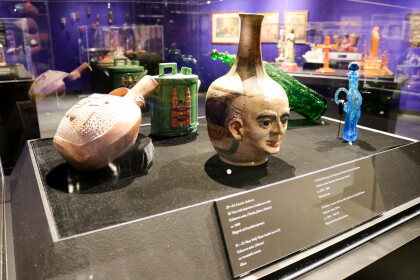
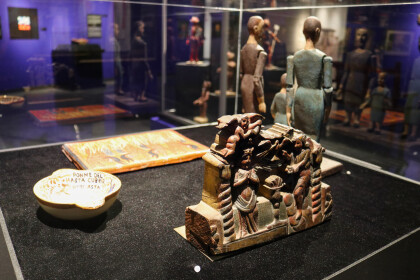

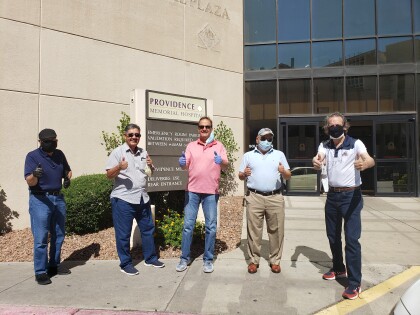
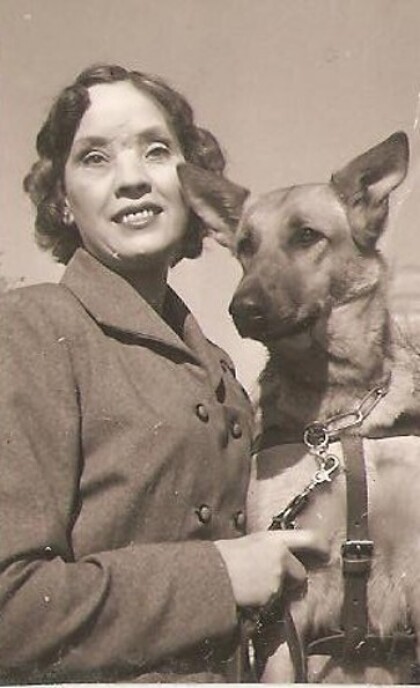
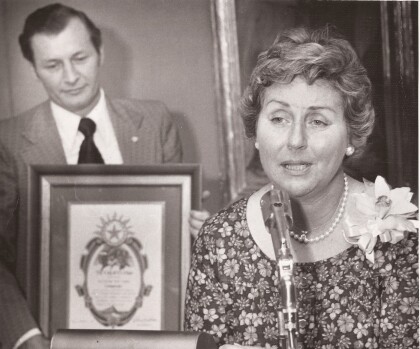
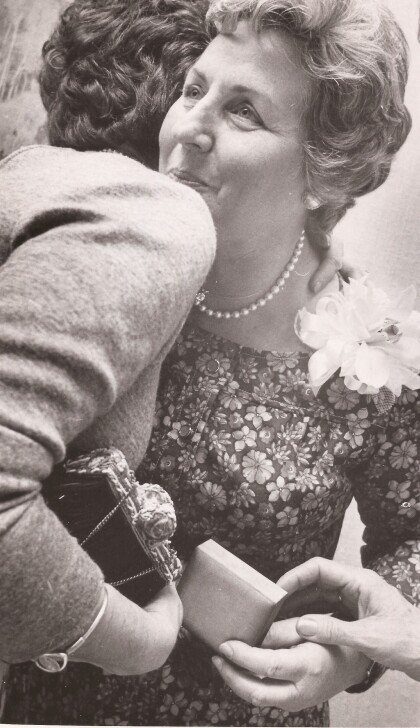
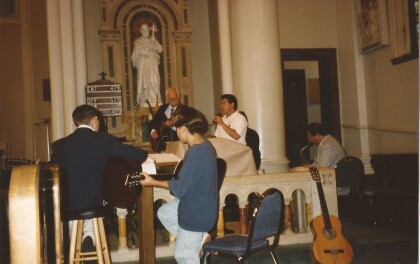
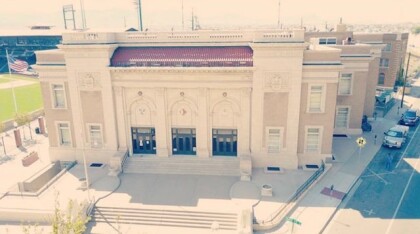
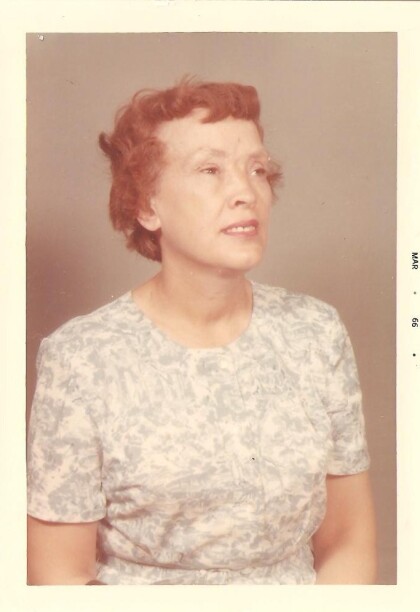
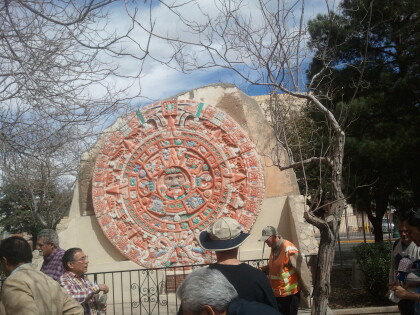
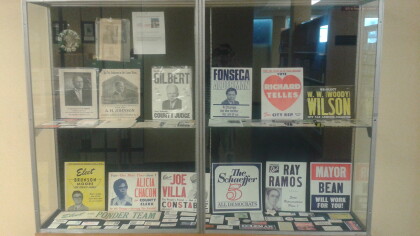
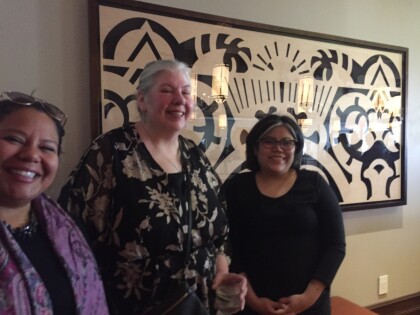
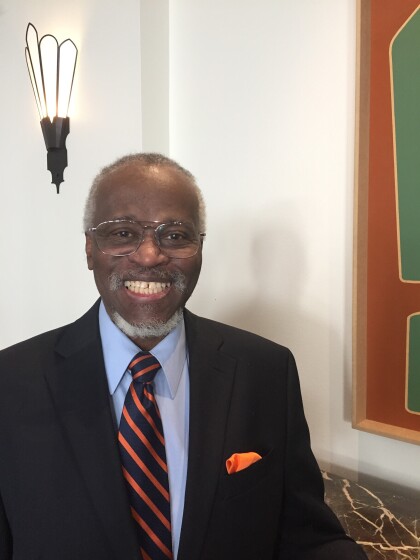
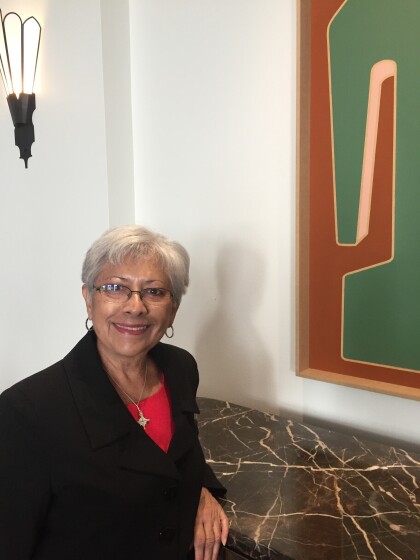
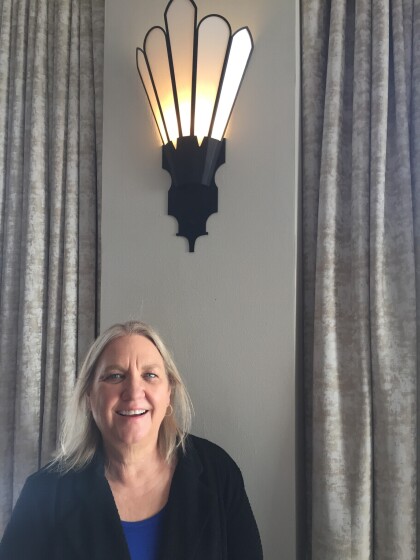
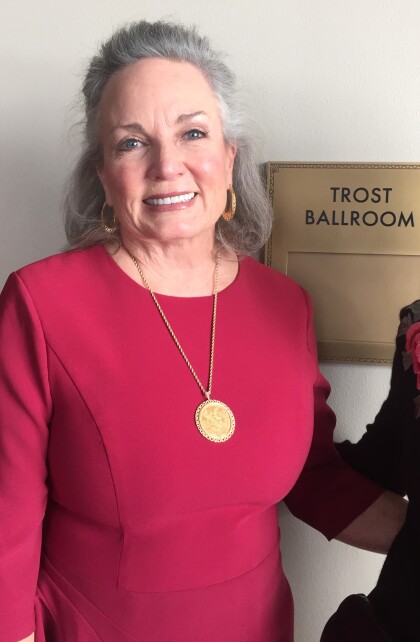
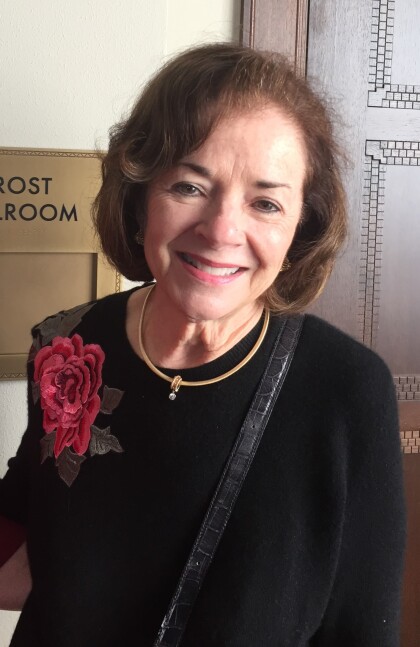
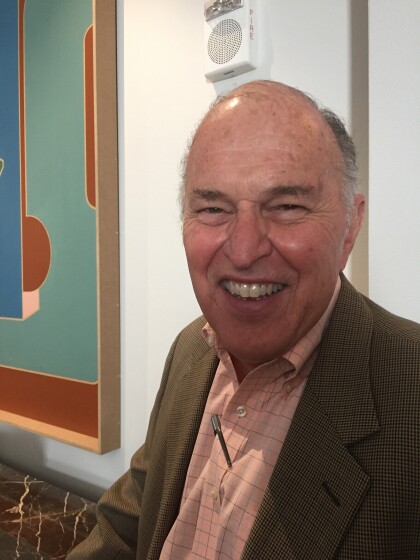
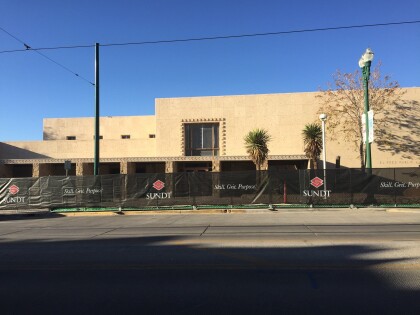
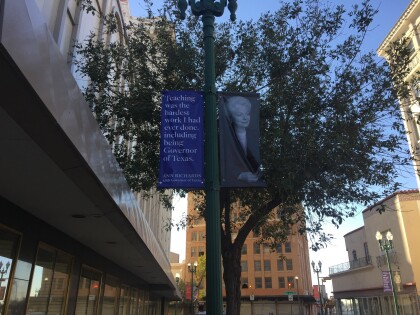


Comentarios
Hacer un comentario